Spices That Lower Bad Cholesterol (and How to Use Them in Your Cooking)
In the realm of culinary arts, spices have long been the unsung heroes, not only enhancing flavors but also offering a plethora of health benefits. Among these benefits, the ability to lower bad cholesterol levels naturally is a standout feature. That's why we've expanded our list of exceptional spices that not only add zest to your dishes but also contribute to cardiovascular health by reducing LDL cholesterol. As we explore each spice, we will uncover their unique properties, historical uses, and practical applications in everyday cooking. Prepare to embark on a flavorful journey that promises both taste and health in equal measure.
1. Turmeric: The Golden Healer
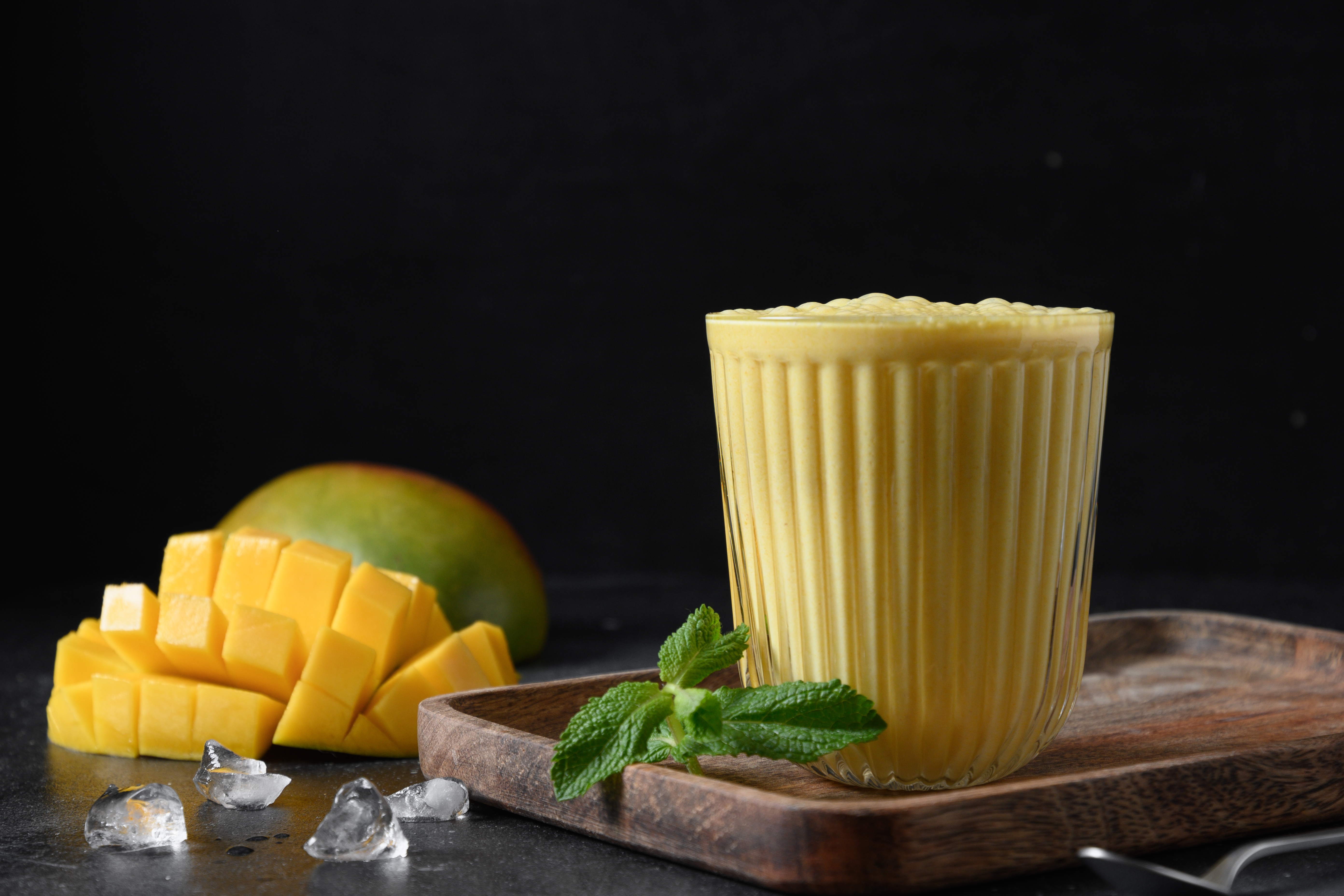
Turmeric, often referred to as the "golden spice," has been a staple in Indian cuisine and medicine for centuries. Its active compound, curcumin, is renowned for its anti-inflammatory and antioxidant properties. Recent studies have shown that curcumin can significantly reduce levels of LDL cholesterol, thereby lowering the risk of heart disease. Incorporating turmeric into your diet is simple—add it to soups, stews, or even smoothies for a vibrant color and a health boost. Its subtle earthy flavor complements a wide range of dishes, making it a versatile addition to any culinary repertoire.
2. Cinnamon: Sweet and Savory Health
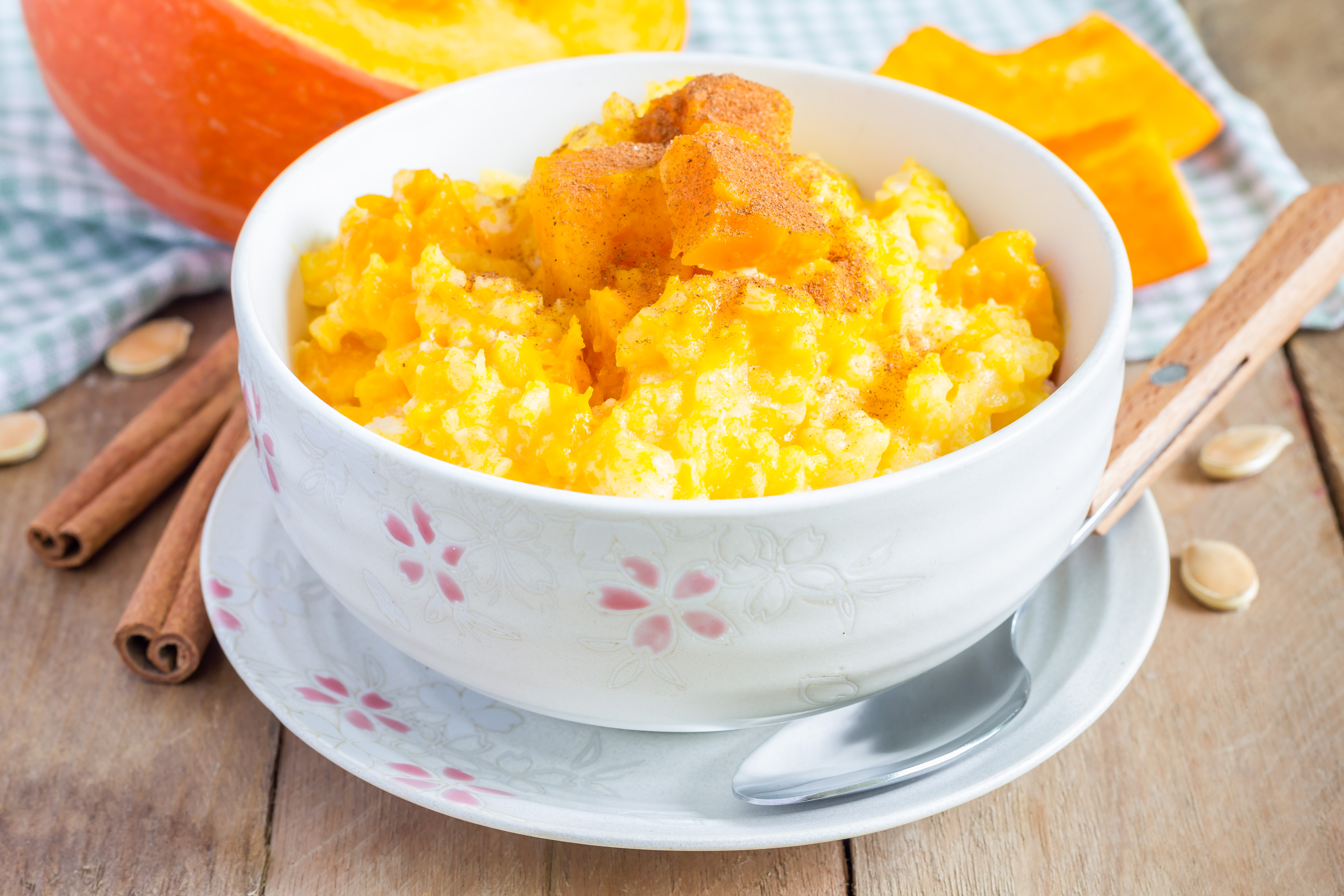
Cinnamon is more than just a sweet treat; it is a potent spice with the ability to regulate blood sugar levels and lower cholesterol. Rich in cinnamaldehyde, cinnamon has been shown to reduce total cholesterol and triglyceride levels in the blood. This spice is perfect for both sweet and savory dishes—sprinkle it on oatmeal, mix it into curries, or use it to flavor roasted vegetables. Its warm, aromatic profile not only enhances the taste of your meals but also supports heart health, making it a deliciously strategic choice for a cholesterol-conscious diet.
3. Ginger: The Zesty Root
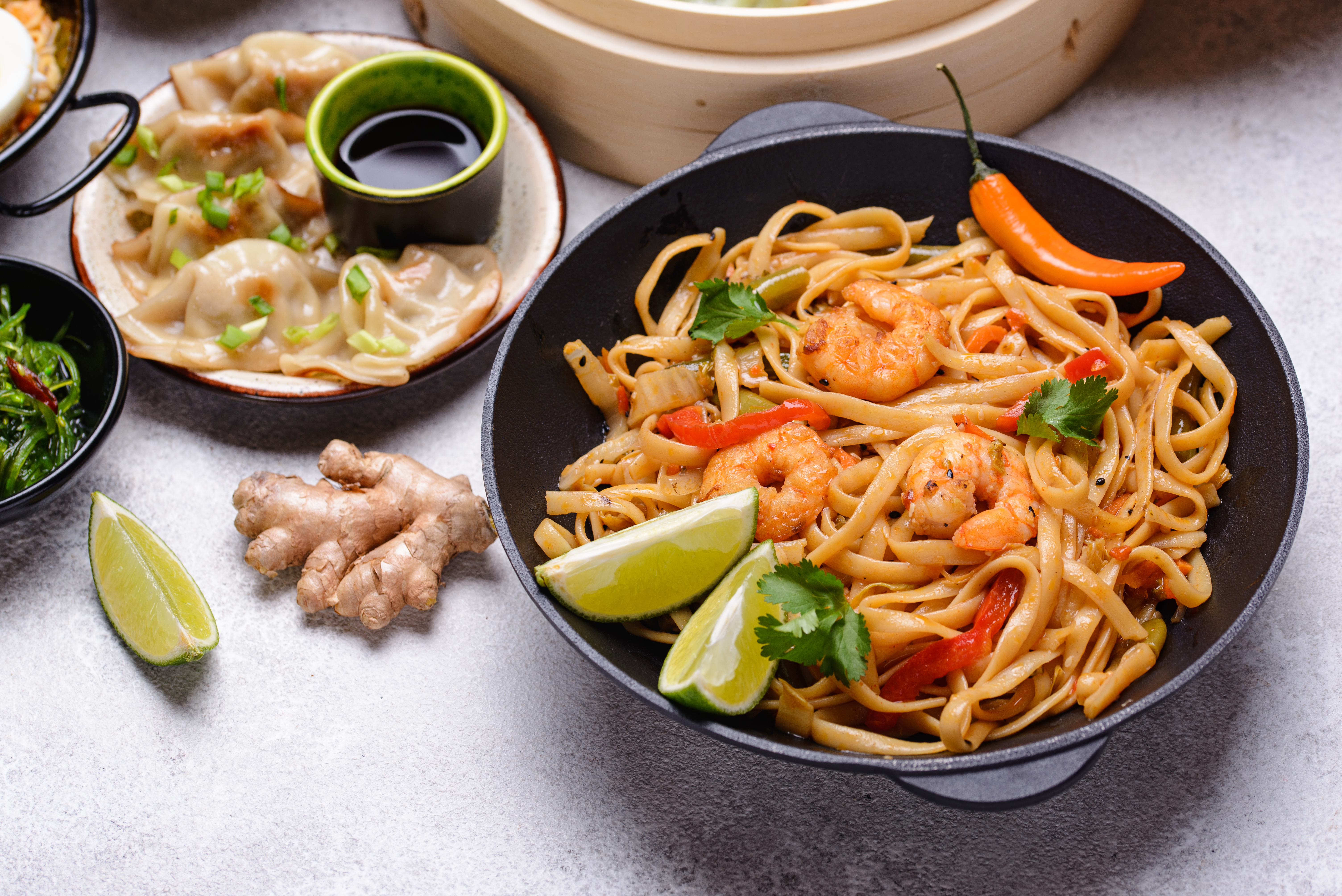
Ginger's zesty flavor and medicinal qualities have made it a staple in kitchens worldwide. Known for its ability to soothe digestive issues, ginger also plays a role in lowering cholesterol. Its active components, gingerols, have been found to reduce LDL cholesterol and improve overall heart health. Incorporate ginger into your diet by adding it to teas, stir-fries, or marinades. Its spicy kick can elevate the flavor of both sweet and savory dishes, while its health benefits provide an added incentive to include it in your culinary creations.
4. Garlic: The Heart's Best Friend
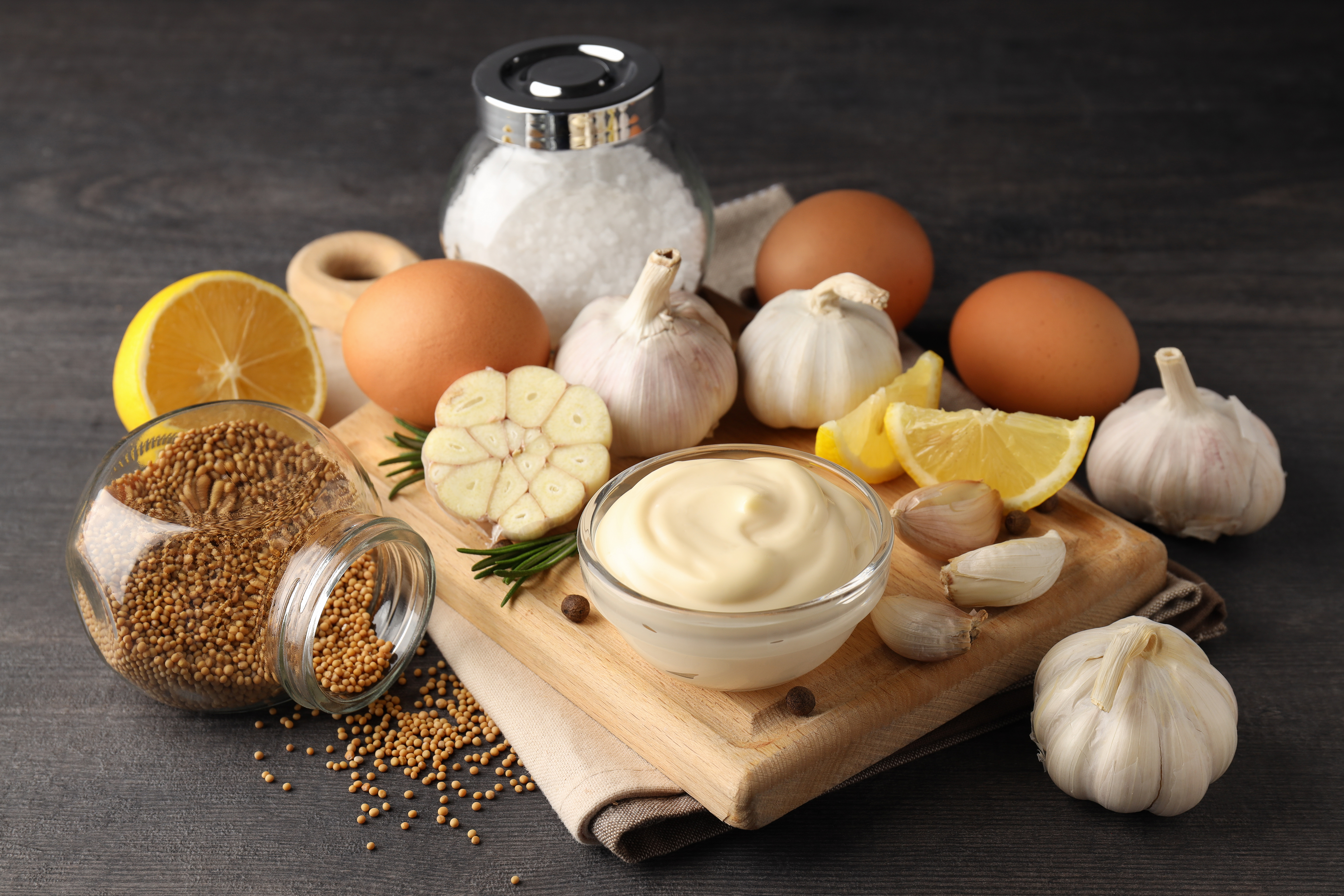
Garlic is celebrated not only for its bold flavor but also for its cardiovascular benefits. Rich in allicin, a compound that has been shown to lower cholesterol levels, garlic is a powerful ally in heart health. Regular consumption of garlic can lead to a reduction in LDL cholesterol and an increase in HDL cholesterol, the "good" cholesterol. Use garlic liberally in your cooking—crush it into pasta sauces, roast it with vegetables, or incorporate it into salad dressings. Its pungent aroma and robust taste make it a versatile ingredient that enhances both flavor and health.
5. Black Pepper: The King of Spices

Black pepper, often dubbed the "king of spices," is a staple in kitchens around the globe. Piperine, the active compound in black pepper, has been shown to enhance the bioavailability of curcumin in turmeric, amplifying its cholesterol-lowering effects. Additionally, black pepper itself may help reduce cholesterol levels by increasing the absorption of nutrients. Sprinkle freshly ground black pepper over your dishes to add a subtle heat and depth of flavor. Its versatility and health benefits make it an essential spice for anyone looking to spice up their cooking while caring for their heart.
6. Fenugreek: The Ancient Remedy
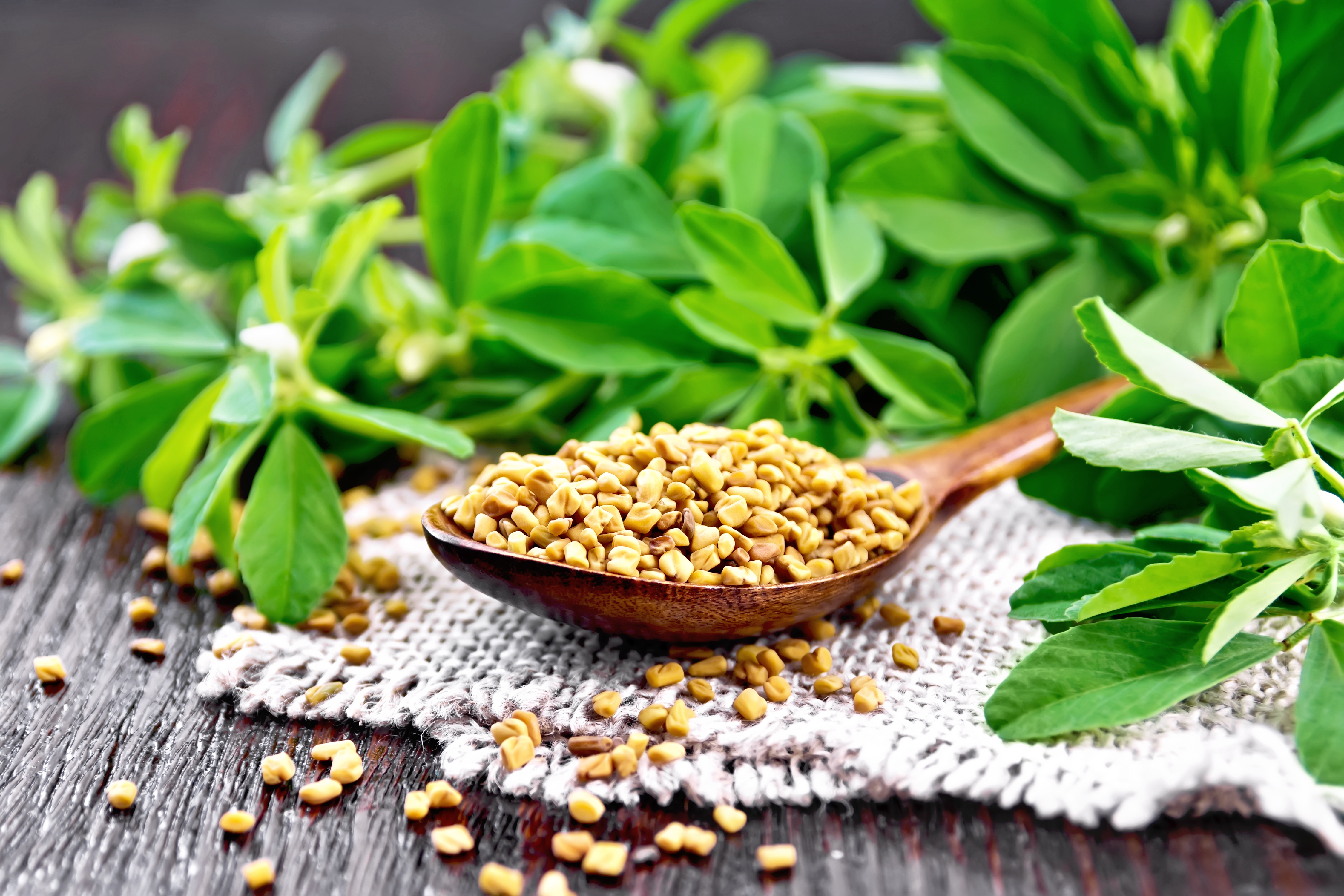
Fenugreek seeds have been used in traditional medicine for centuries, known for their ability to improve metabolic health. These seeds contain soluble fiber, which helps lower cholesterol by binding to it in the digestive system and preventing its absorption. Fenugreek can be used in a variety of dishes—add it to curries, use it as a spice rub for meats, or incorporate it into bread dough. Its slightly bitter, nutty flavor adds complexity to dishes, while its health benefits make it a valuable addition to any heart-healthy diet.
7. Cayenne Pepper: The Fiery Protector
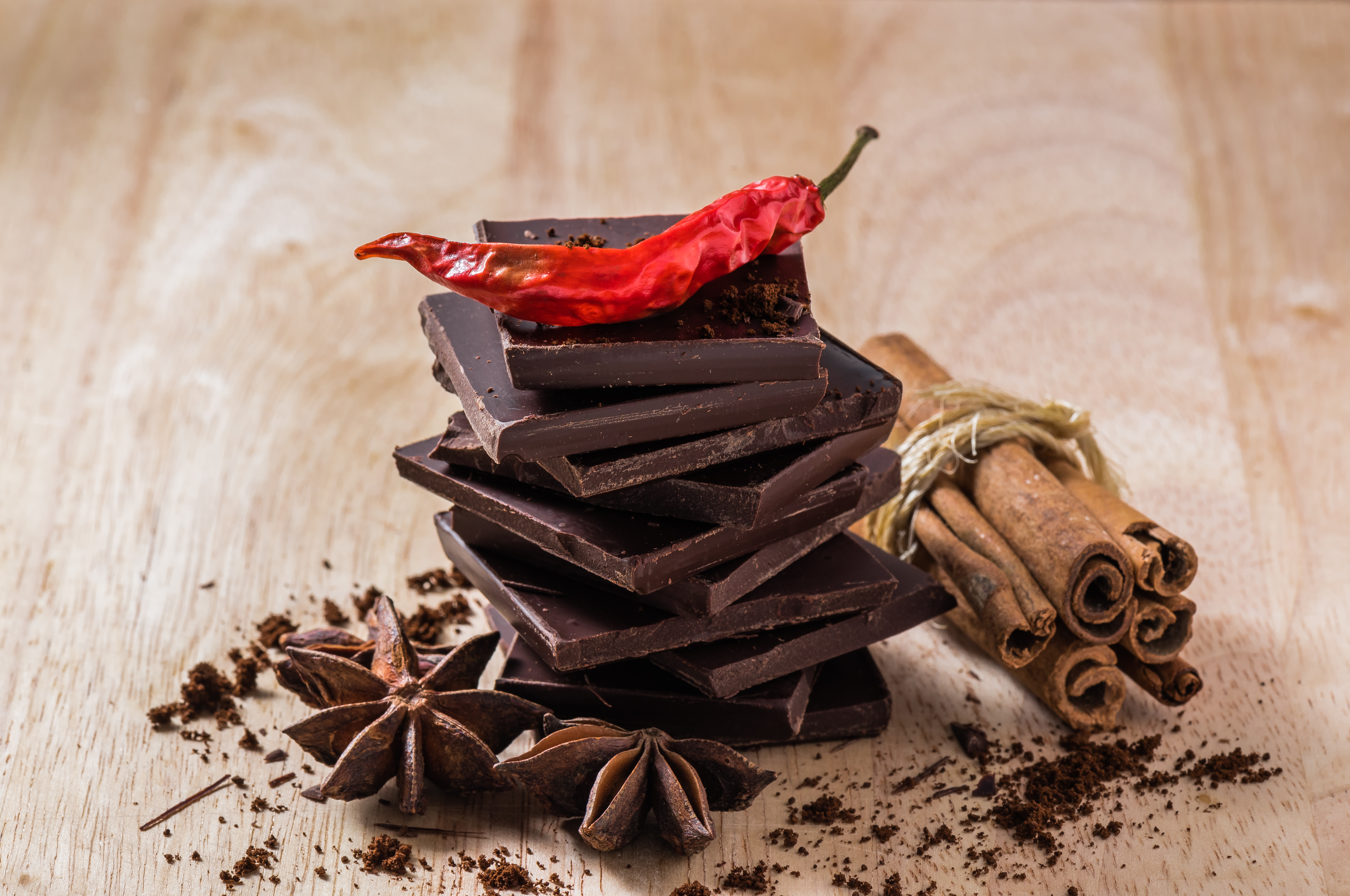
Cayenne pepper, with its fiery kick, is more than just a spice for heat lovers. Capsaicin, the active compound in cayenne, has been shown to reduce LDL cholesterol levels and improve circulation. Incorporating cayenne pepper into your meals can be as simple as adding a dash to soups, sauces, or even chocolate desserts for a surprising twist. Its intense heat not only elevates the flavor profile of dishes but also contributes to cardiovascular health, making it a bold choice for those looking to spice up their cooking and support heart health.
8. Coriander: The Fragrant Healer
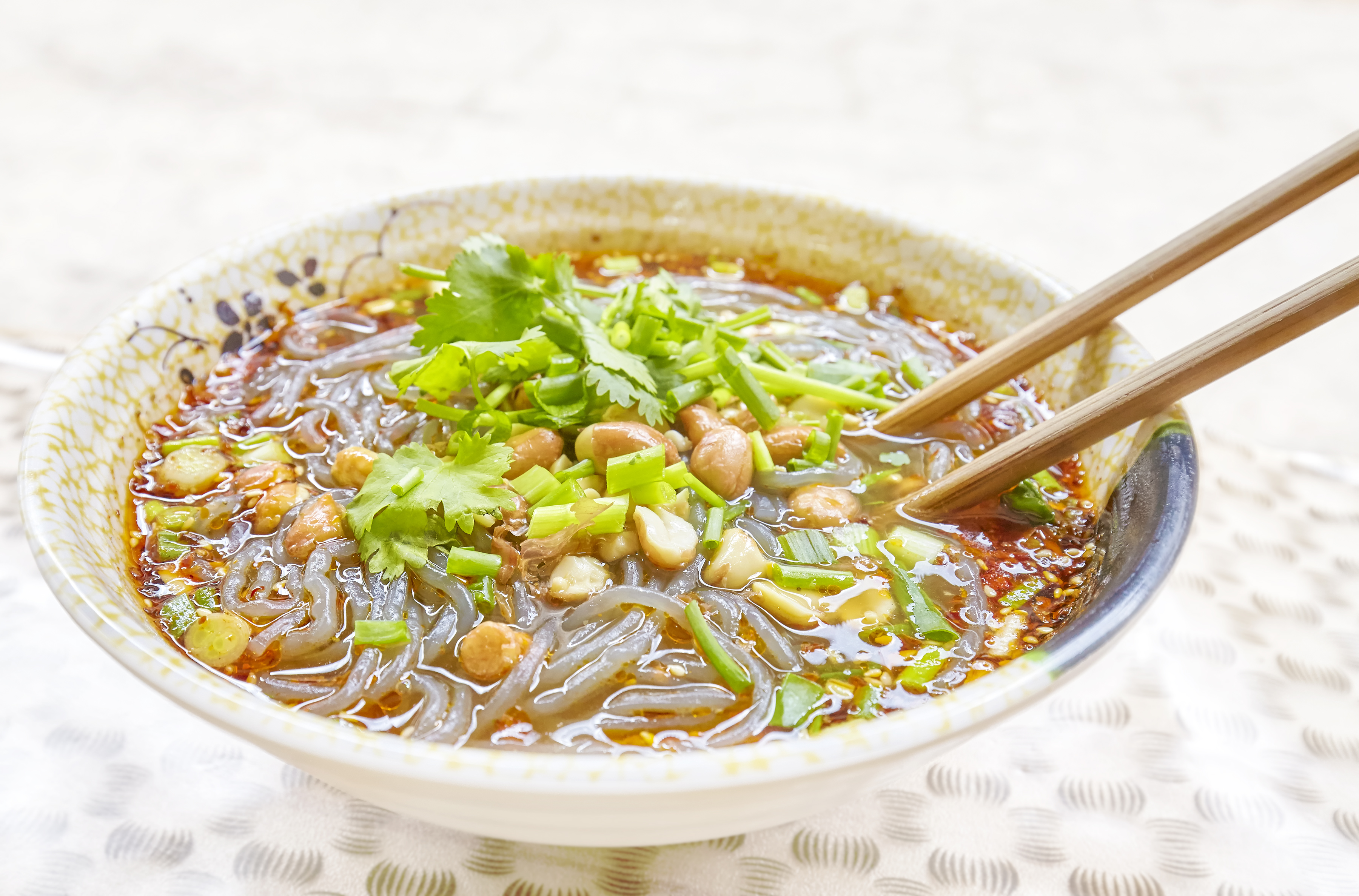
Coriander seeds are known for their distinctive citrusy flavor and their ability to lower cholesterol levels. Rich in antioxidants and dietary fiber, coriander helps reduce LDL cholesterol while promoting overall heart health. Use coriander seeds in spice blends, grind them into powders for seasoning, or add them whole to soups and stews for a burst of flavor. Their versatility and health benefits make coriander seeds a valuable addition to any kitchen, enhancing both the taste and nutritional profile of your meals.
9. Cloves: The Aromatic Powerhouse
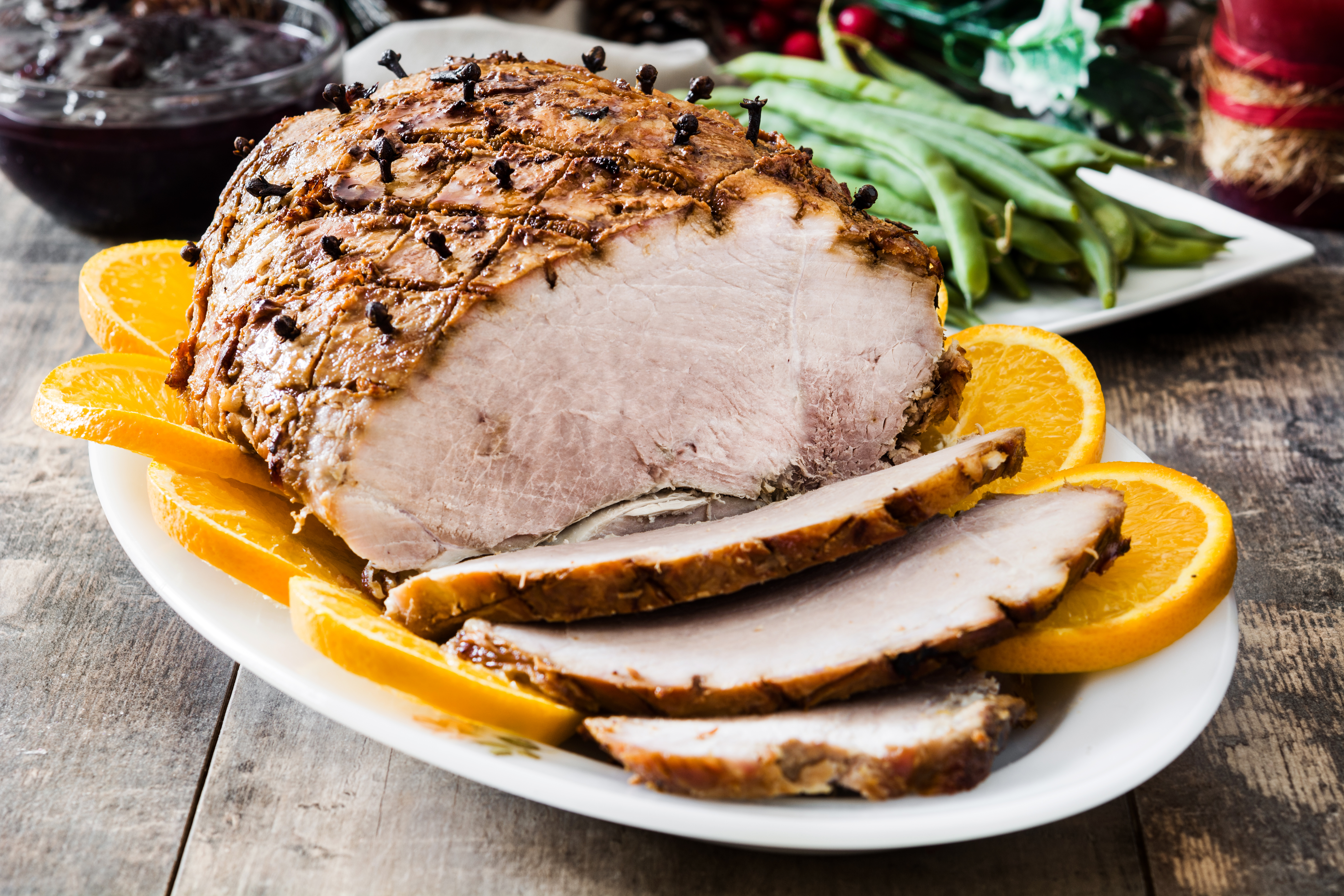
Cloves, with their warm, sweet aroma, are a powerful spice with numerous health benefits. Eugenol, the active compound in cloves, has been shown to reduce cholesterol levels and improve liver function. Cloves can be used whole or ground in a variety of dishes—add them to baked goods, infuse them into teas, or use them to flavor meats. Their strong, aromatic presence not only enhances the taste of your meals but also supports heart health, making them a flavorful and beneficial addition to your spice cabinet.
10. Cardamom: The Exotic Delight

Cardamom, often referred to as the "queen of spices," is cherished for its unique, floral flavor and its health benefits. Studies have shown that cardamom can help lower cholesterol levels and improve heart health. Incorporate cardamom into your cooking by adding it to rice dishes, curries, or even desserts for an exotic twist. Its distinctive flavor profile adds an element of surprise to dishes while its health benefits provide an additional reason to include it in your culinary adventures.
11. Nutmeg: The Warm Comforter
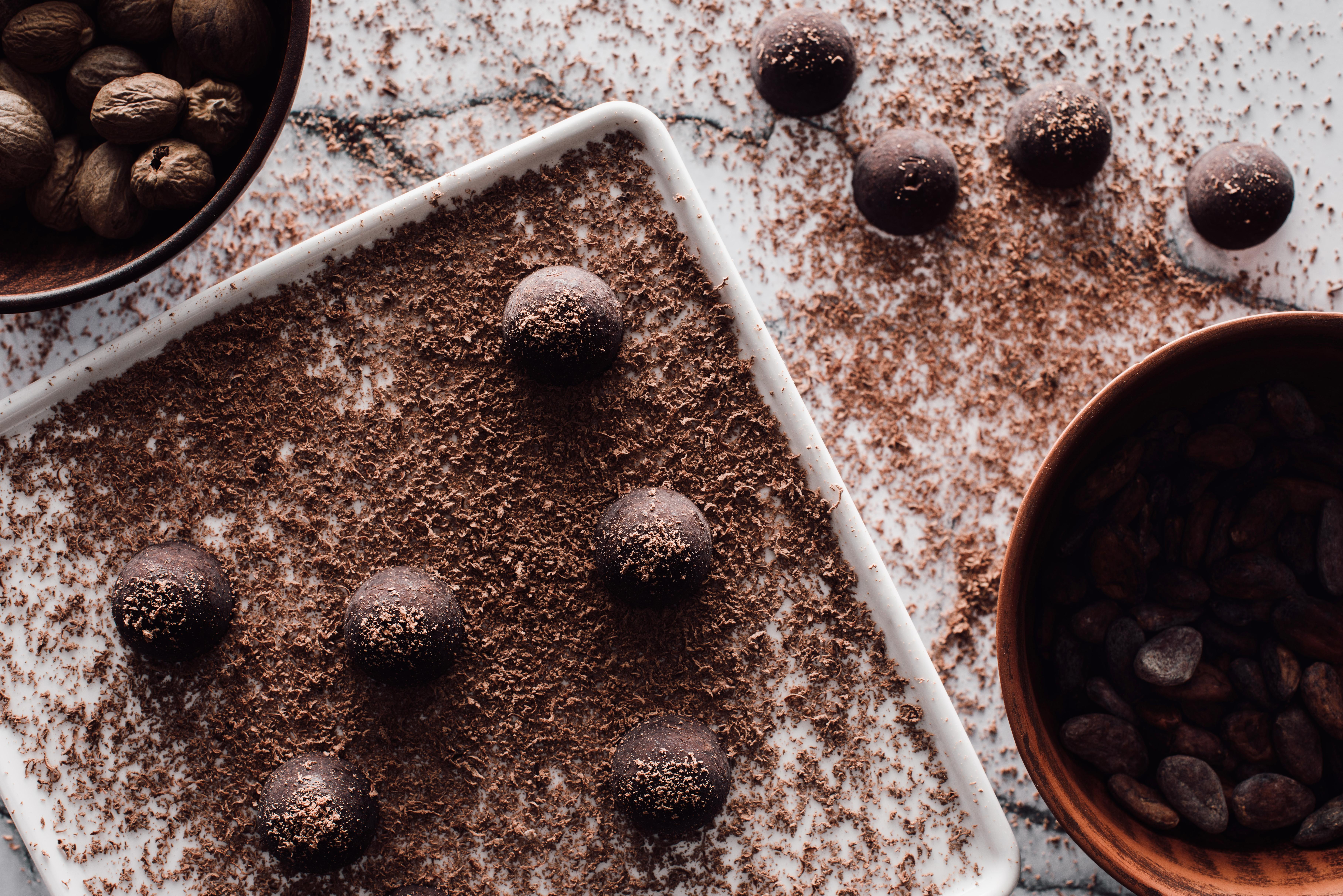
Nutmeg is a warm, aromatic spice that not only enhances the flavor of dishes but also offers health benefits. It contains compounds that have been shown to reduce cholesterol levels and improve circulation. Use nutmeg in both sweet and savory dishes—grate it over creamy sauces, add it to baked goods, or stir it into warm beverages for a comforting touch. Its rich, complex flavor and health-promoting properties make nutmeg a valuable addition to any spice collection, offering both taste and heart health benefits.
12. Mustard Seeds: The Tiny Titans
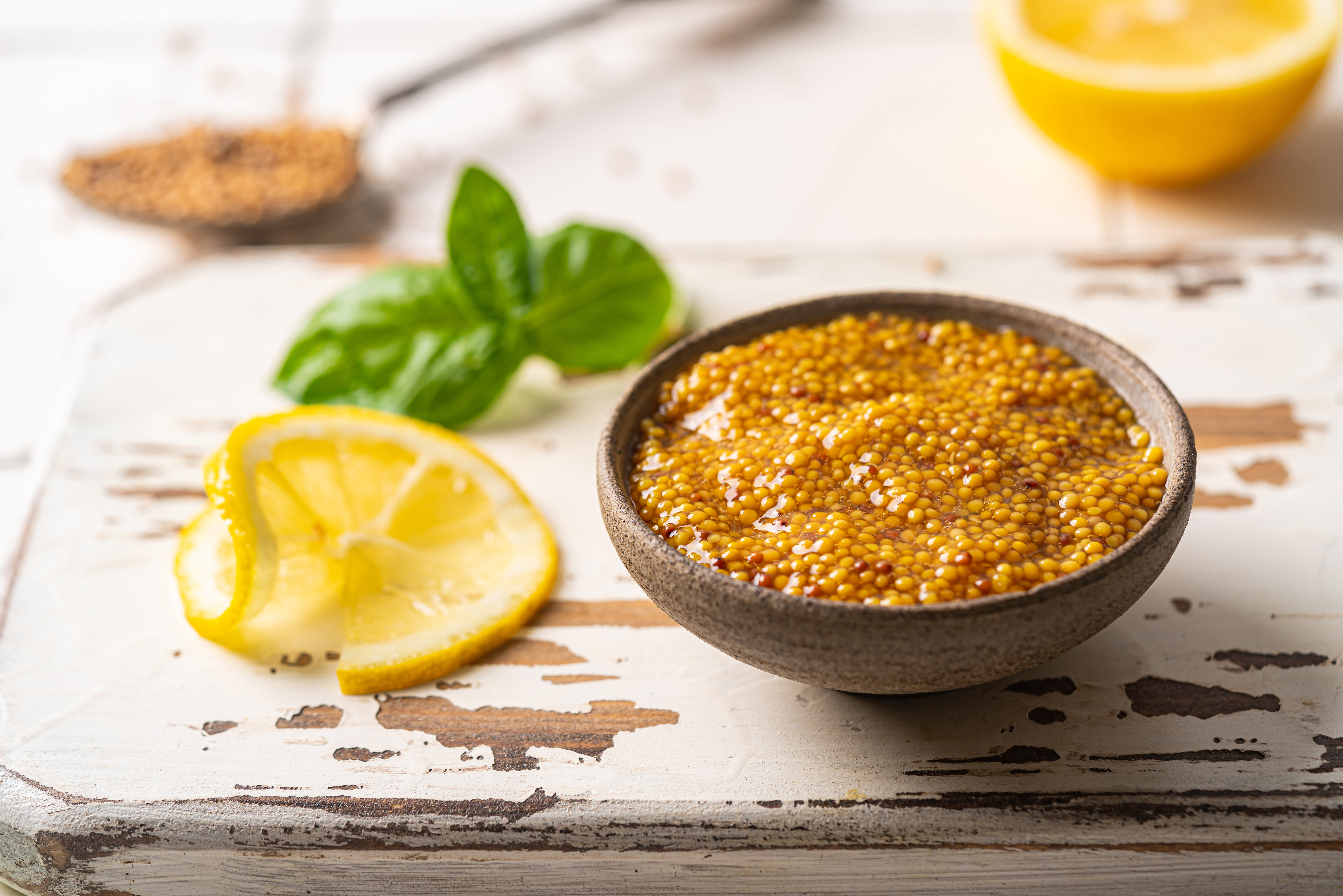
Mustard seeds may be small, but they pack a punch when it comes to flavor and health benefits. Rich in omega-3 fatty acids and antioxidants, mustard seeds have been shown to lower cholesterol levels and support heart health. Incorporate mustard seeds into your cooking by using them in spice rubs, salad dressings, or pickling brines. Their sharp, tangy flavor adds depth to dishes, while their health benefits make them a smart choice for anyone looking to enhance their culinary creations with heart-healthy ingredients.
13. Saffron: The Luxurious Healer
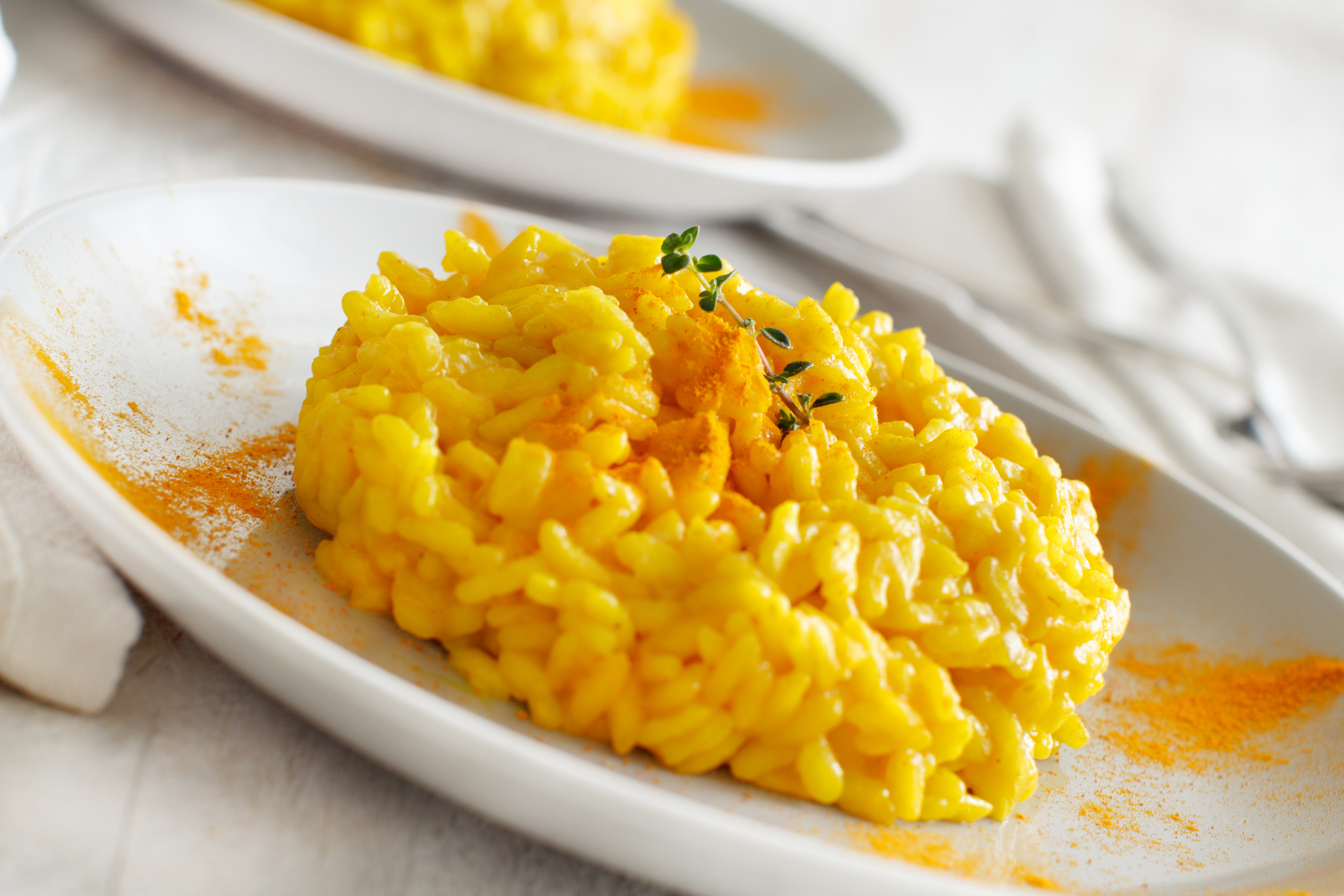
Saffron, known as the world's most expensive spice, offers more than just a luxurious flavor. It contains antioxidants that have been shown to lower cholesterol levels and improve heart health. Use saffron sparingly in dishes like risottos, paellas, or desserts to impart a rich, golden color and a delicate, floral flavor. Its unique taste and health benefits make saffron a prized addition to any kitchen, offering both culinary delight and cardiovascular support.
14. Sumac: The Antioxidant Zinger
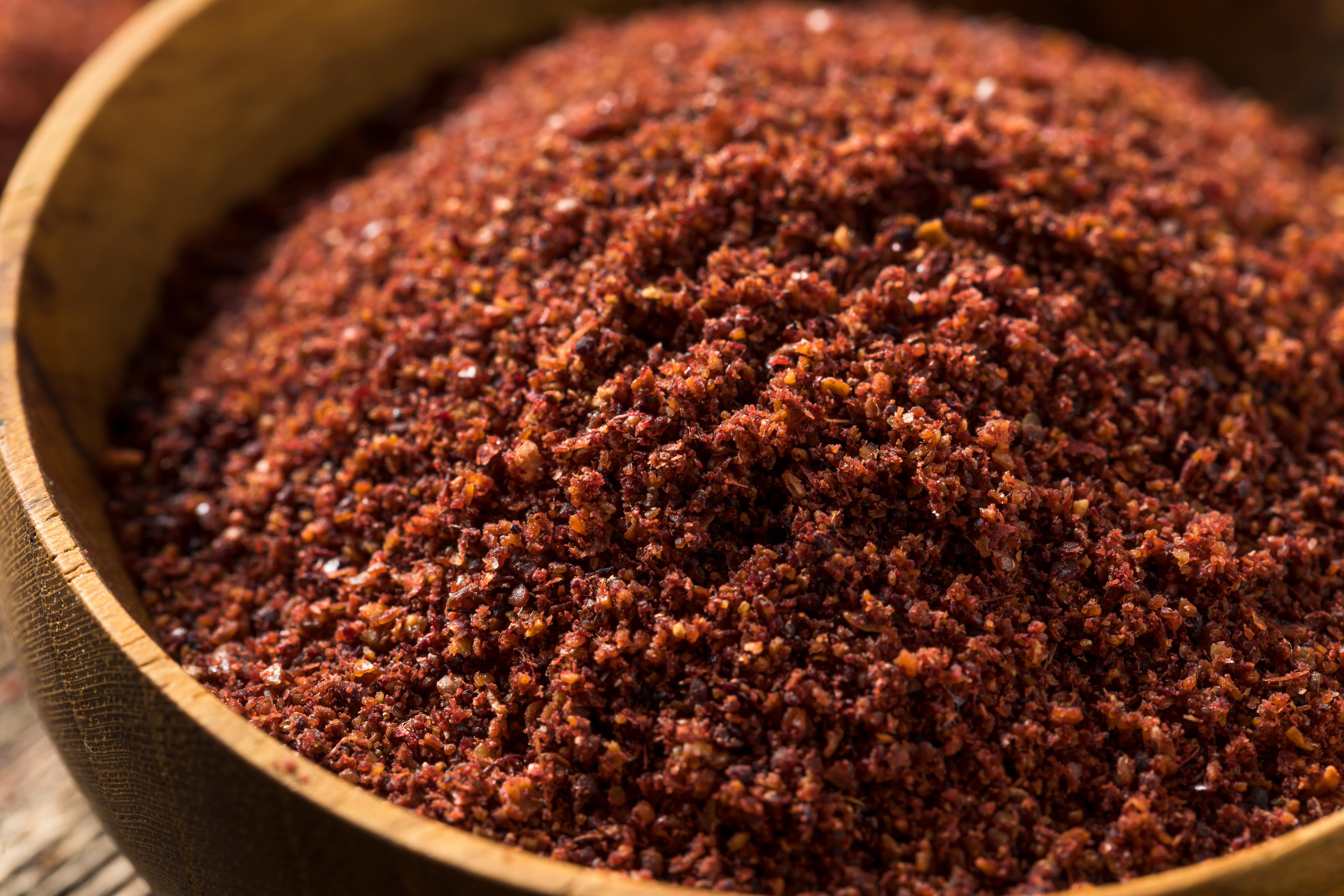
This vibrant, tangy spice, a staple in Middle Eastern cuisine, is gaining recognition for its powerful antioxidant properties. Sumac is rich in flavonoids and tannins, which work to protect against the oxidation of LDL cholesterol, a key step in the formation of arterial plaque. Some studies suggest it can also help lower blood pressure. With its bright, lemony flavor, sumac is a fantastic salt substitute on roasted vegetables, grilled meats, and hummus, allowing you to boost flavor while reducing sodium intake. This dual benefit makes it a smart and flavorful choice for a heart-healthy diet.
15. Oregano: The Mediterranean Healer
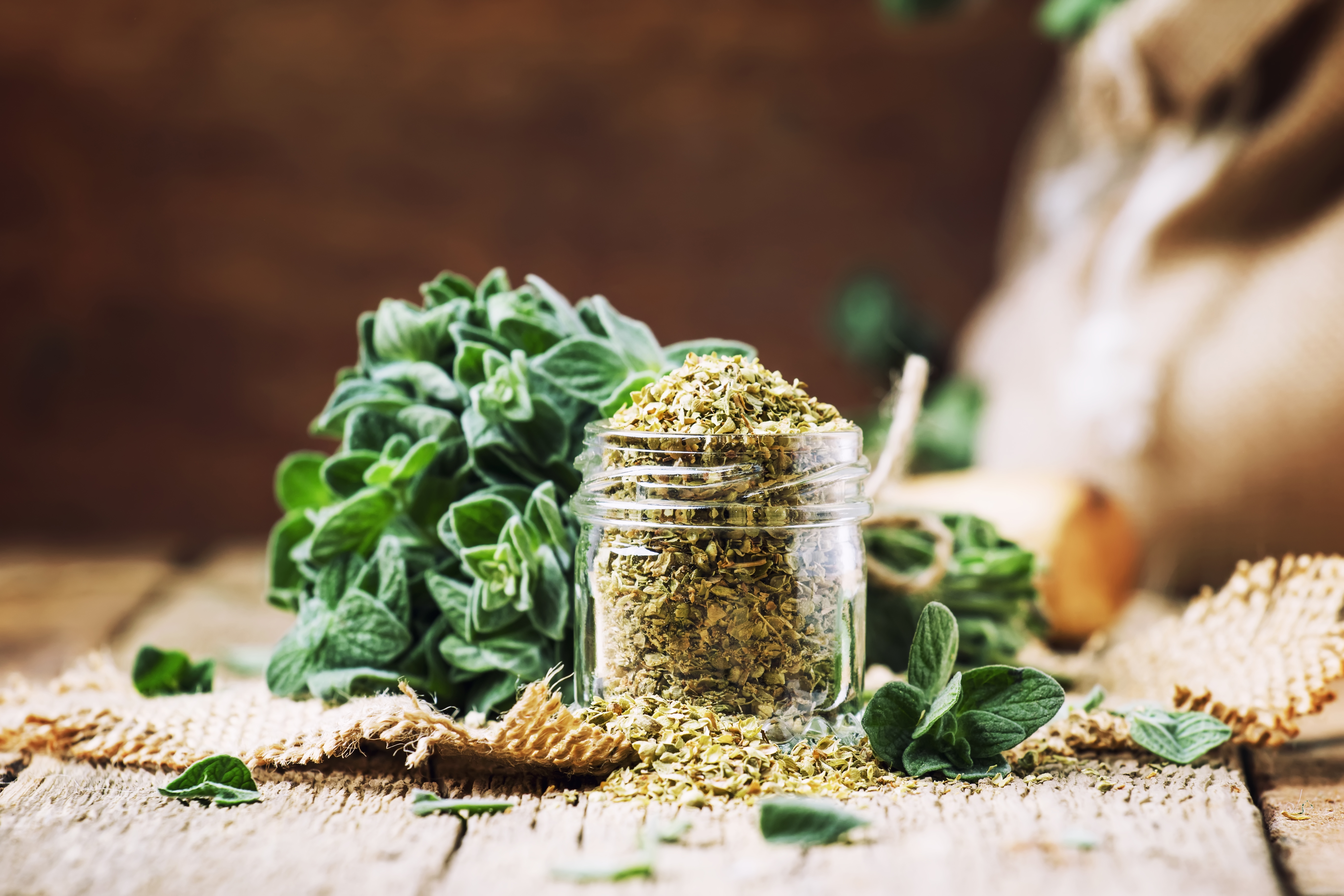
While known for its distinct earthy flavor, oregano is also a potent ally against high cholesterol. It is packed with antioxidants, particularly carvacrol and thymol, which have been shown to combat oxidative stress and inflammation—two major contributors to cardiovascular disease. These compounds can also help lower lipid levels in the blood. Fresh or dried, oregano pairs beautifully with tomato-based sauces, poultry, and salads, providing a robust flavor profile. By simply adding a generous sprinkle of oregano to your meals, you're not just seasoning your food; you're also infusing it with powerful, heart-protective benefits.
16. Anise: The Licorice-Flavored Regulator
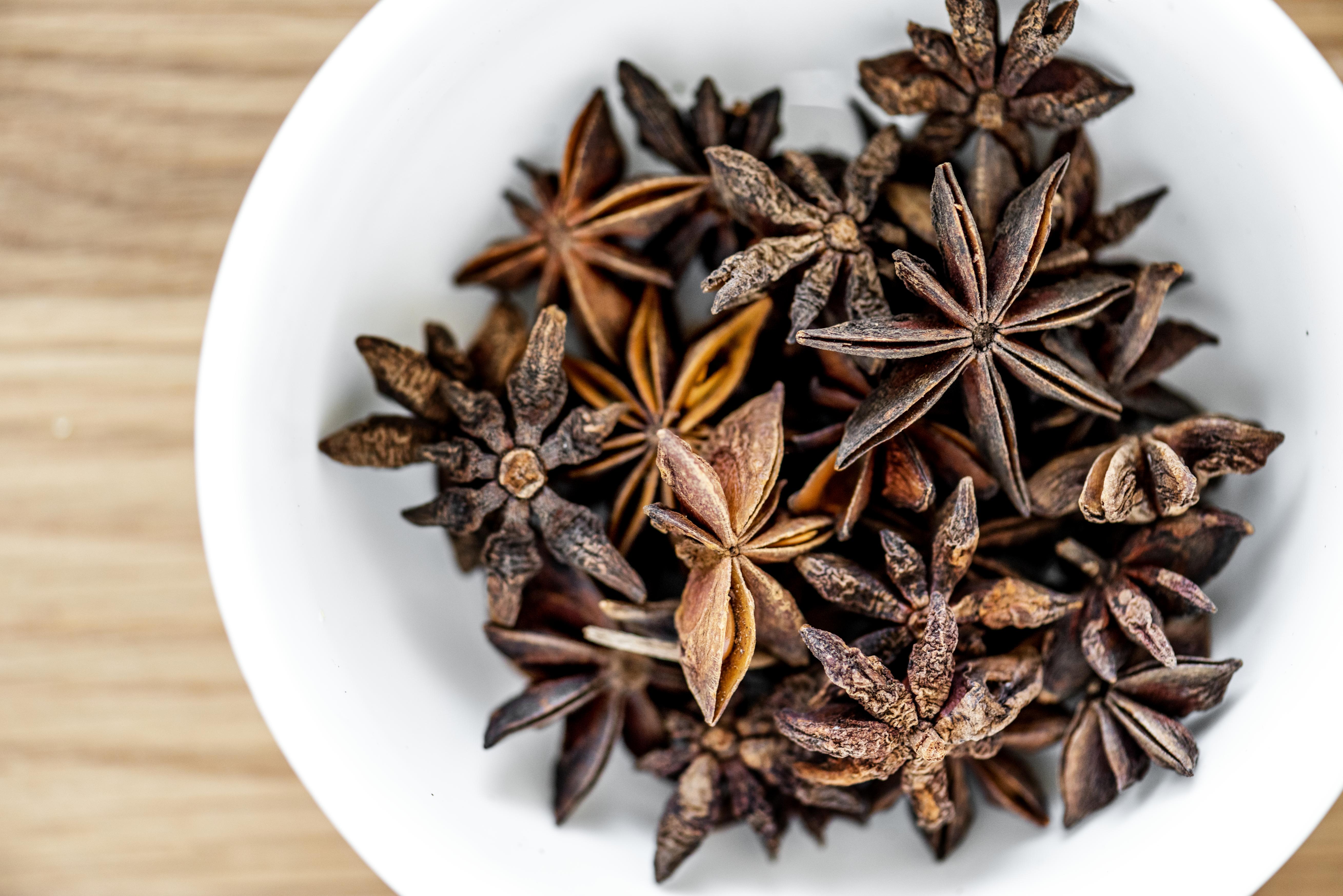
This beautiful, star-shaped spice is a unique addition to any heart-healthy diet. Star anise is a rich source of anethole, a compound that has been found to have anti-inflammatory and antioxidant properties. Research suggests that it can help regulate lipid metabolism in the body, potentially leading to lower cholesterol levels. Its strong, licorice-like flavor is perfect for infusing into teas, broths, and braising liquids for meats. While often used in small quantities, the powerful bioactive compounds in star anise can quietly contribute to your cardiovascular well-being.
17. Rosemary: The Aromatic Defender
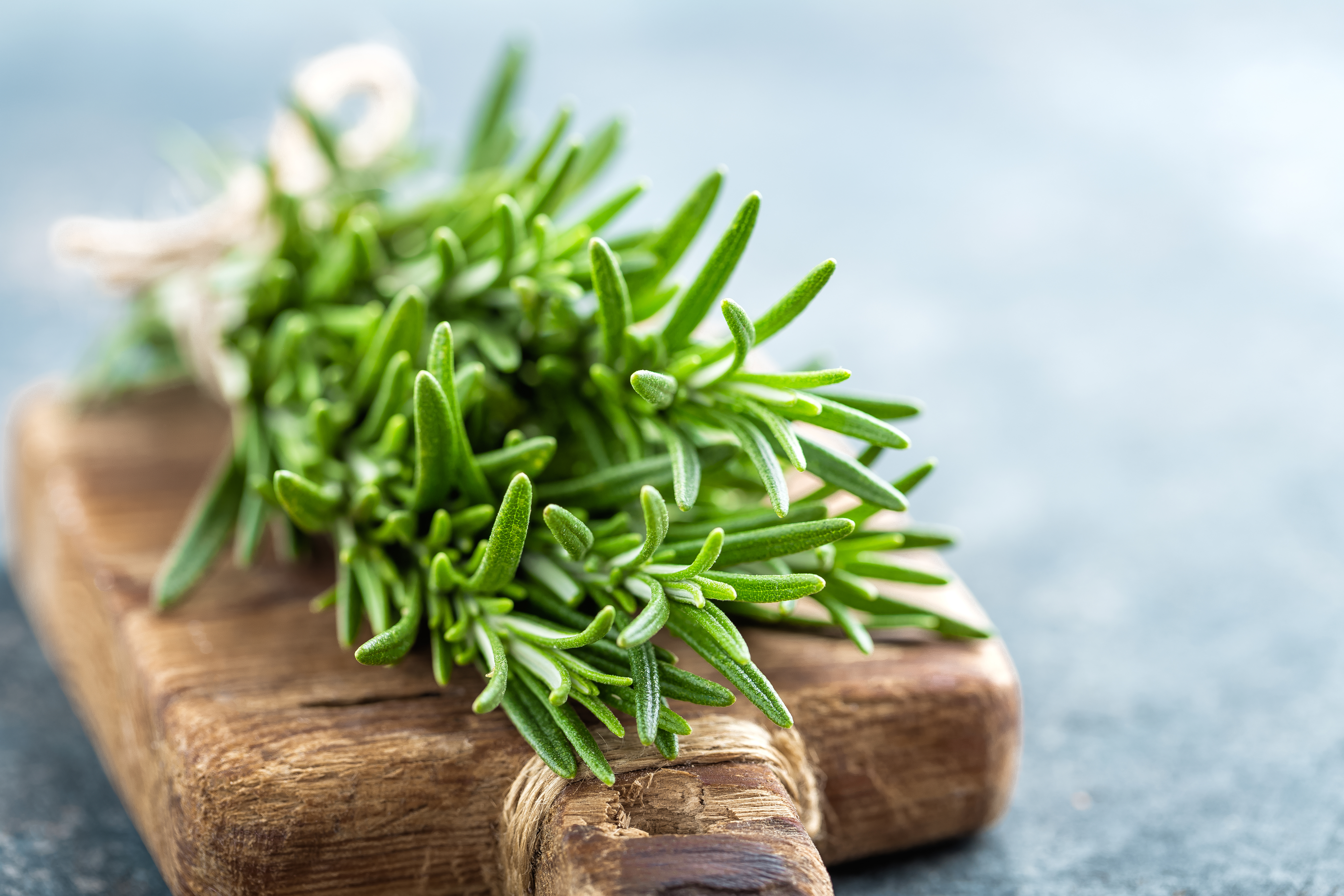
Beyond its use in seasoning poultry and potatoes, rosemary is a potent herb for heart health. It is rich in rosmarinic acid, a powerful antioxidant and anti-inflammatory compound that helps reduce the oxidation of LDL cholesterol. Rosemary's active compounds also support liver health, which is vital for the body's ability to produce and manage cholesterol. This fragrant herb can be used fresh or dried and pairs beautifully with roasted vegetables and meats. Incorporating rosemary into your cooking is an easy way to add both flavor and a protective boost to your cardiovascular system.
18. Fennel Seeds: The Digestive & Heart Aid
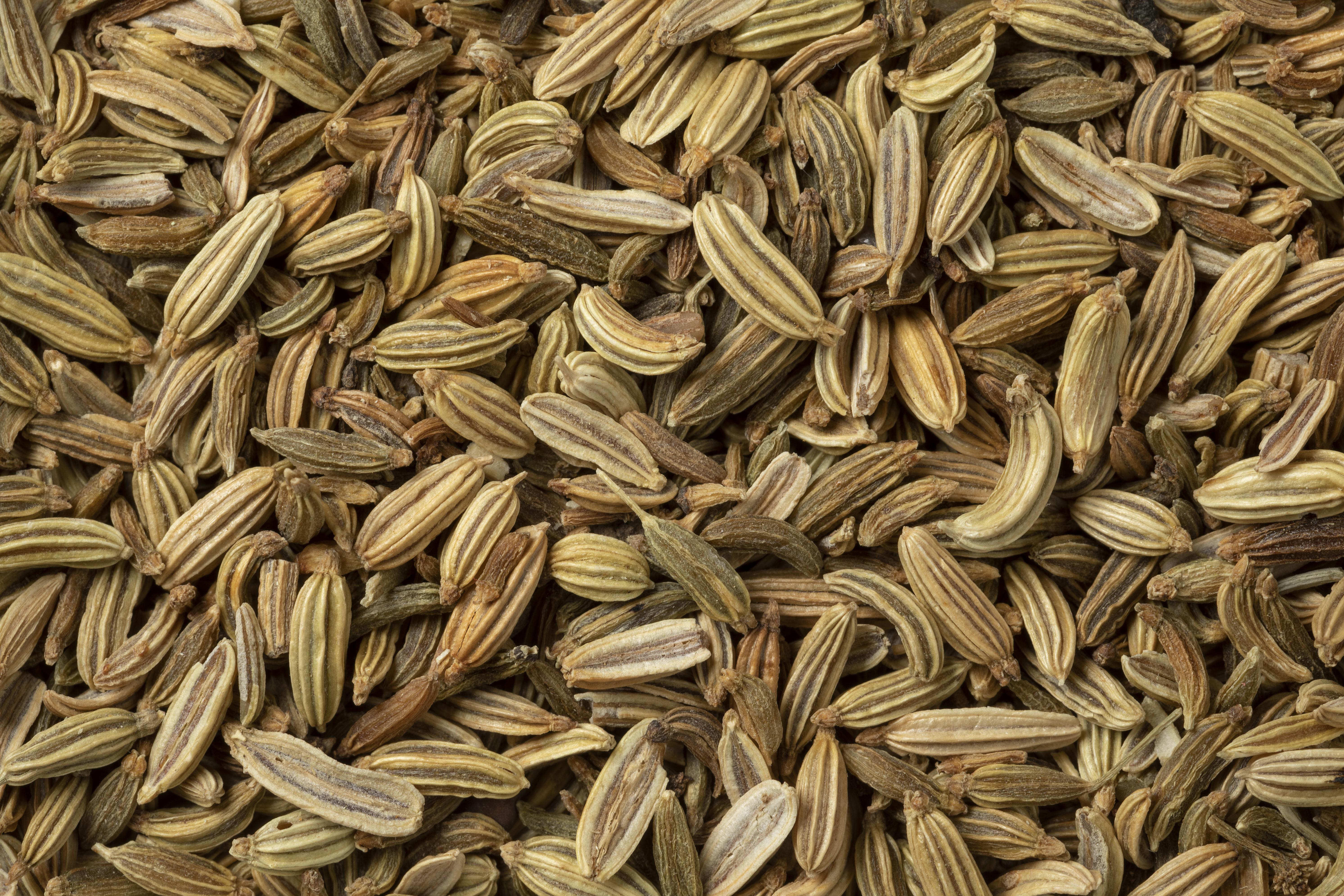
Fennel seeds have a distinct licorice-like flavor and are a common ingredient in Indian, Middle Eastern, and Italian cuisines. They are an excellent source of dietary fiber, which is known to help lower cholesterol by binding to it and carrying it out of the body. Fennel seeds also contain a high concentration of antioxidants, including quercetin and anethole, which help reduce inflammation and protect against cellular damage. You can toast and grind fennel seeds to add a sweet, aromatic note to spice rubs, sausages, and curries. Chewing on a few fennel seeds after a meal is also a traditional practice for aiding digestion and freshening breath, while quietly providing a cardiovascular boost.
19. Cumin: The Earthy Cholesterol Reducer

Cumin, a staple in Indian, Mexican, and Middle Eastern cuisines, is a powerful ally against high cholesterol. Its active compounds, primarily cuminaldehyde, have been shown to help lower LDL (bad) cholesterol and triglyceride levels in the blood. Cumin also aids in digestion and supports liver function, which is essential for the body's ability to produce and manage cholesterol. To harness its benefits, toast cumin seeds and grind them into a powder for a fragrant spice blend, or add them whole to soups and stews.
20. Dill: The Heart-Healthy Herb
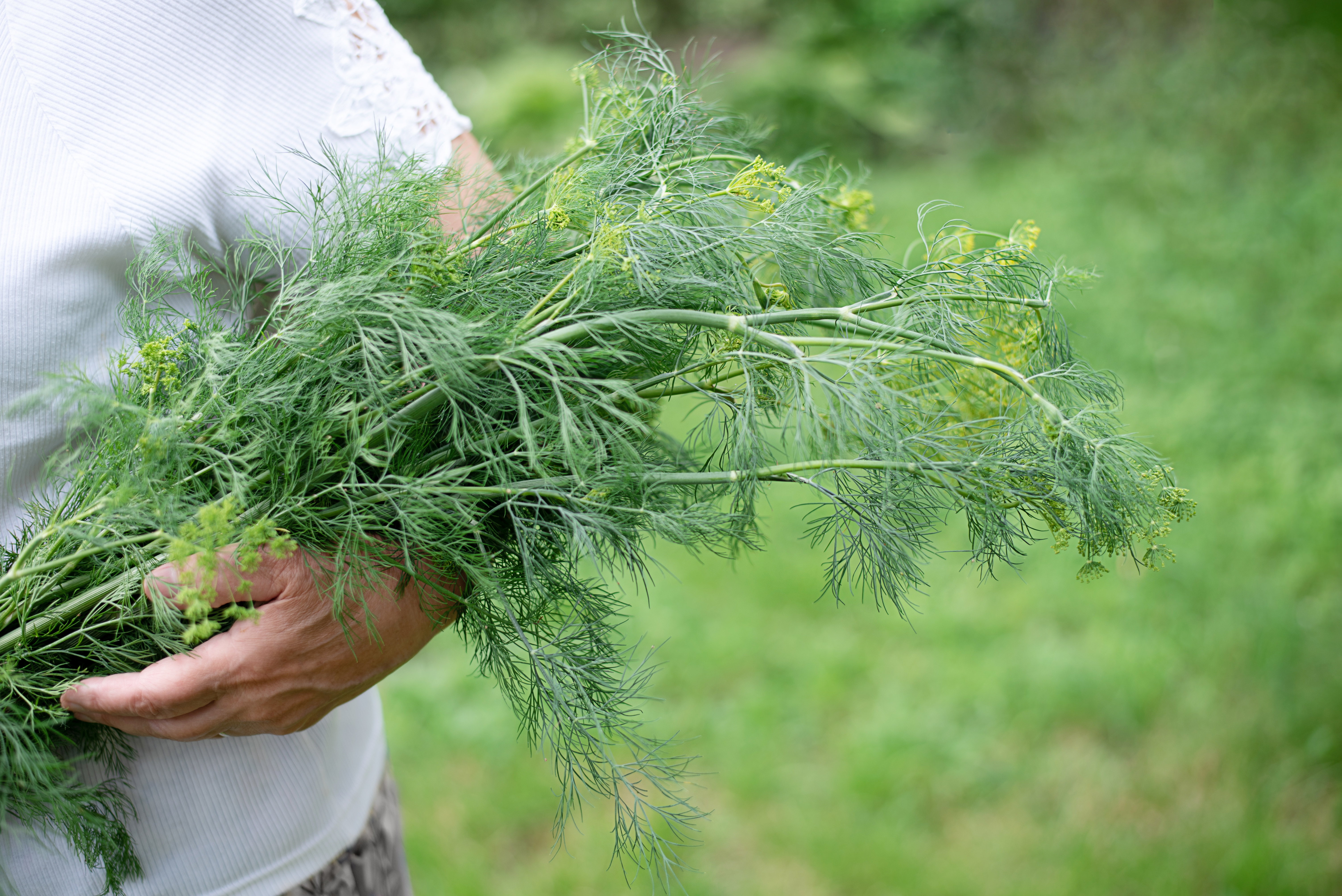
Dill, with its feathery leaves and distinct flavor, is more than just a garnish; it is a heart-healthy herb. Studies have shown that dill can help lower total cholesterol and triglyceride levels, thanks to its high concentration of monoterpenes and flavonoids. These compounds not only have anti-inflammatory properties but also protect against oxidative stress. Use fresh or dried dill to flavor fish, potatoes, or yogurt-based dips. Its subtle, licorice-like flavor adds a refreshing note to meals while contributing to cardiovascular well-being.
21. Tarragon: The Flavorful Metabolism Booster

Tarragon, a herb with a unique, licorice-like flavor, is a secret weapon for cholesterol management. Its active compounds, such as estragole and flavonoids, have been shown to improve insulin sensitivity and support healthy blood sugar levels, which is important for managing cholesterol. Tarragon also has antioxidant and anti-inflammatory properties that protect against cellular damage. It pairs beautifully with chicken, fish, and in light vinaigrettes. Incorporating tarragon into your diet is an easy way to add both flavor and a metabolic boost.
22. Basil: The Anti-Inflammatory Ally
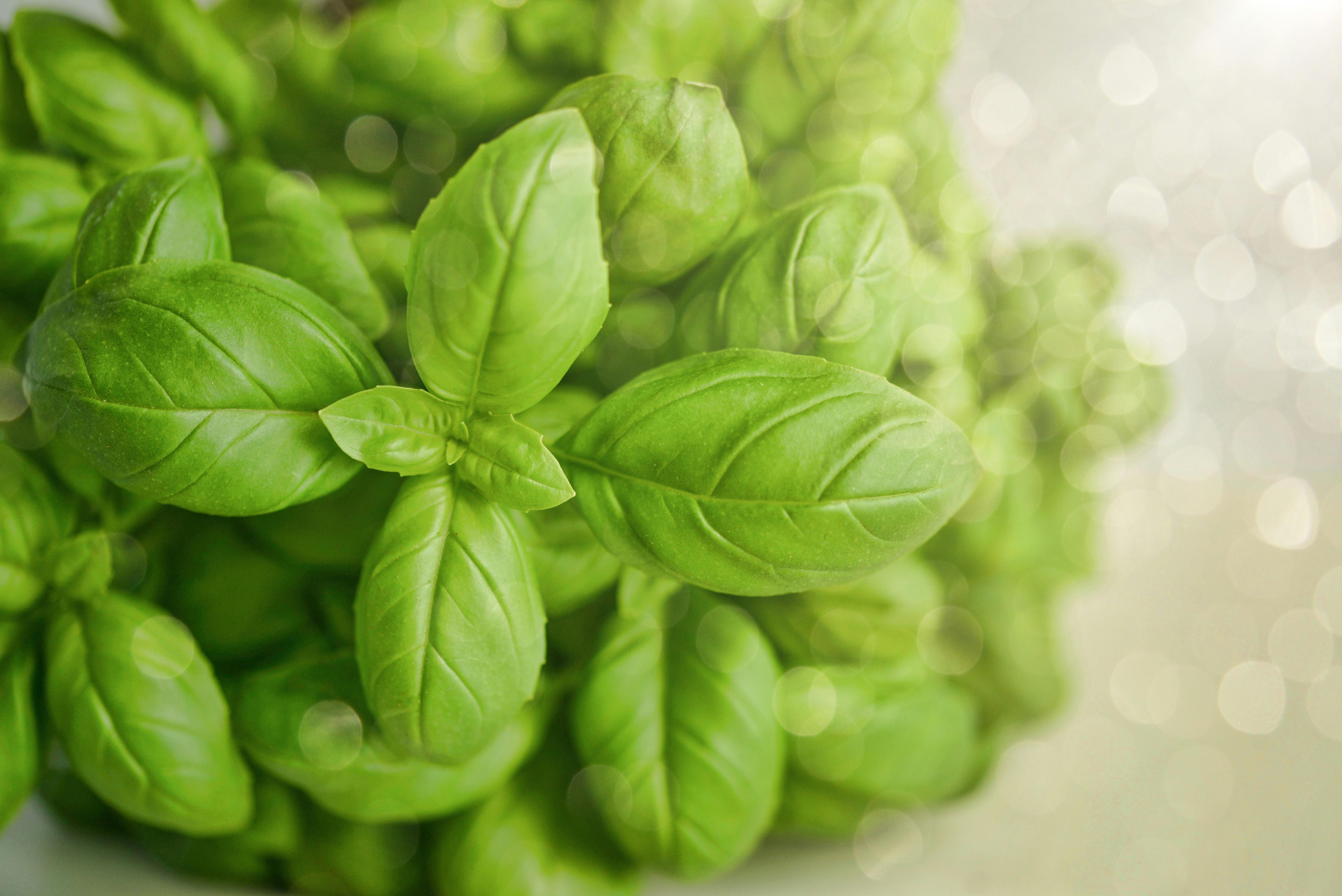
Basil, with its sweet, aromatic leaves, is a culinary favorite with impressive health benefits. It is rich in antioxidants, particularly eugenol, which has been shown to reduce inflammation and oxidative stress. By protecting your cells from damage, basil contributes to overall cardiovascular health. Basil also contains compounds that can support blood flow and help lower blood pressure. Add fresh basil to salads, pestos, or stir-fries to enjoy its delicious taste while providing your body with a powerful, anti-inflammatory punch.
23. Curry Leaves: The Unsung Heart Hero
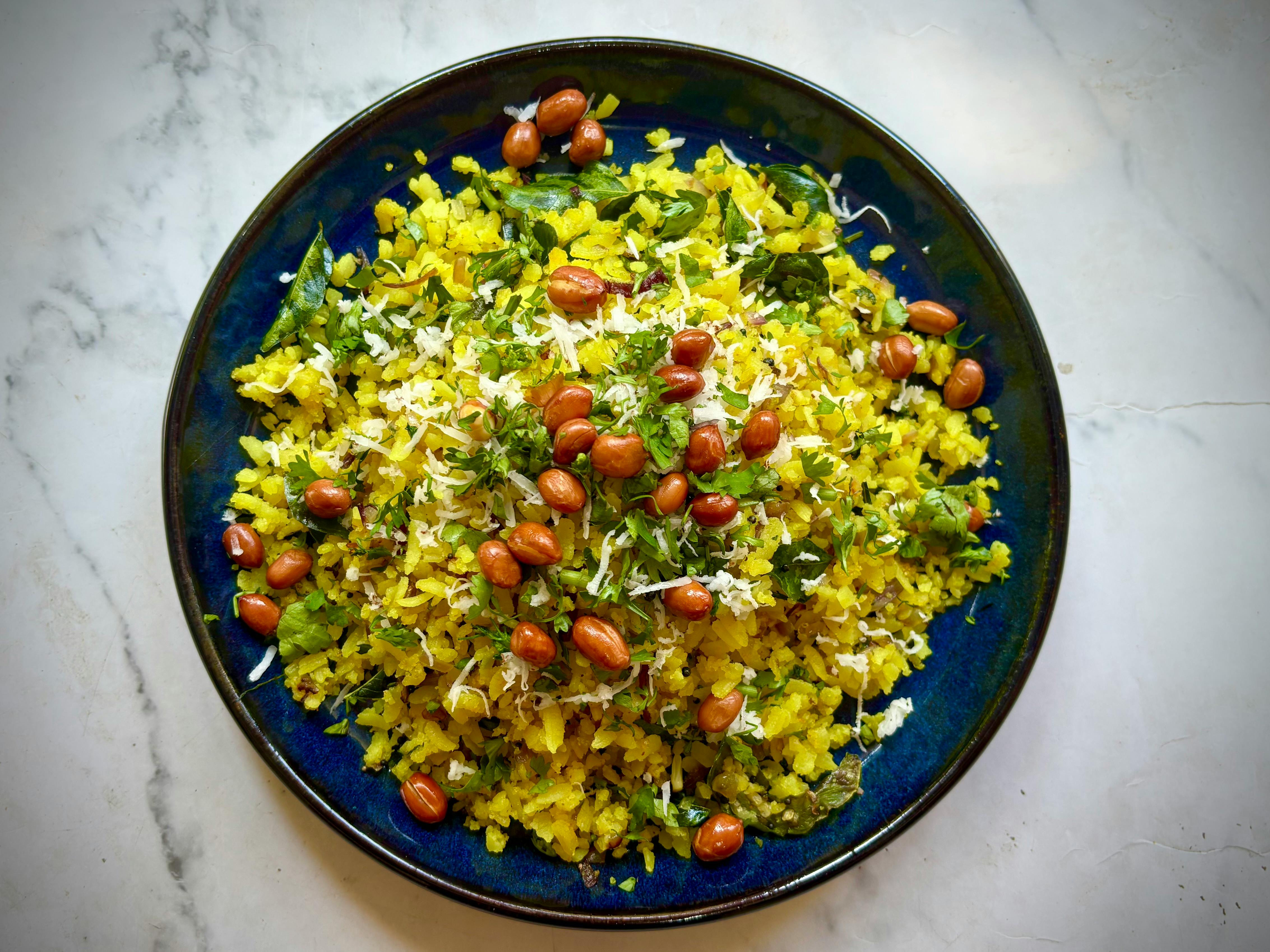
Curry leaves, a staple in South Indian cuisine, are often overlooked but are a potent ally for heart health. They contain compounds that have been shown to reduce LDL (bad) cholesterol and triglyceride levels. Curry leaves also have antioxidant and anti-inflammatory properties, protecting against cellular damage and reducing the risk of chronic diseases. They are a great source of iron and vitamins, making them a nutrient-dense addition to your meals. Toast them in a little oil to release their fragrant flavor before adding them to curries, rice, or lentil dishes.
24. Sage: The Herb of Wisdom
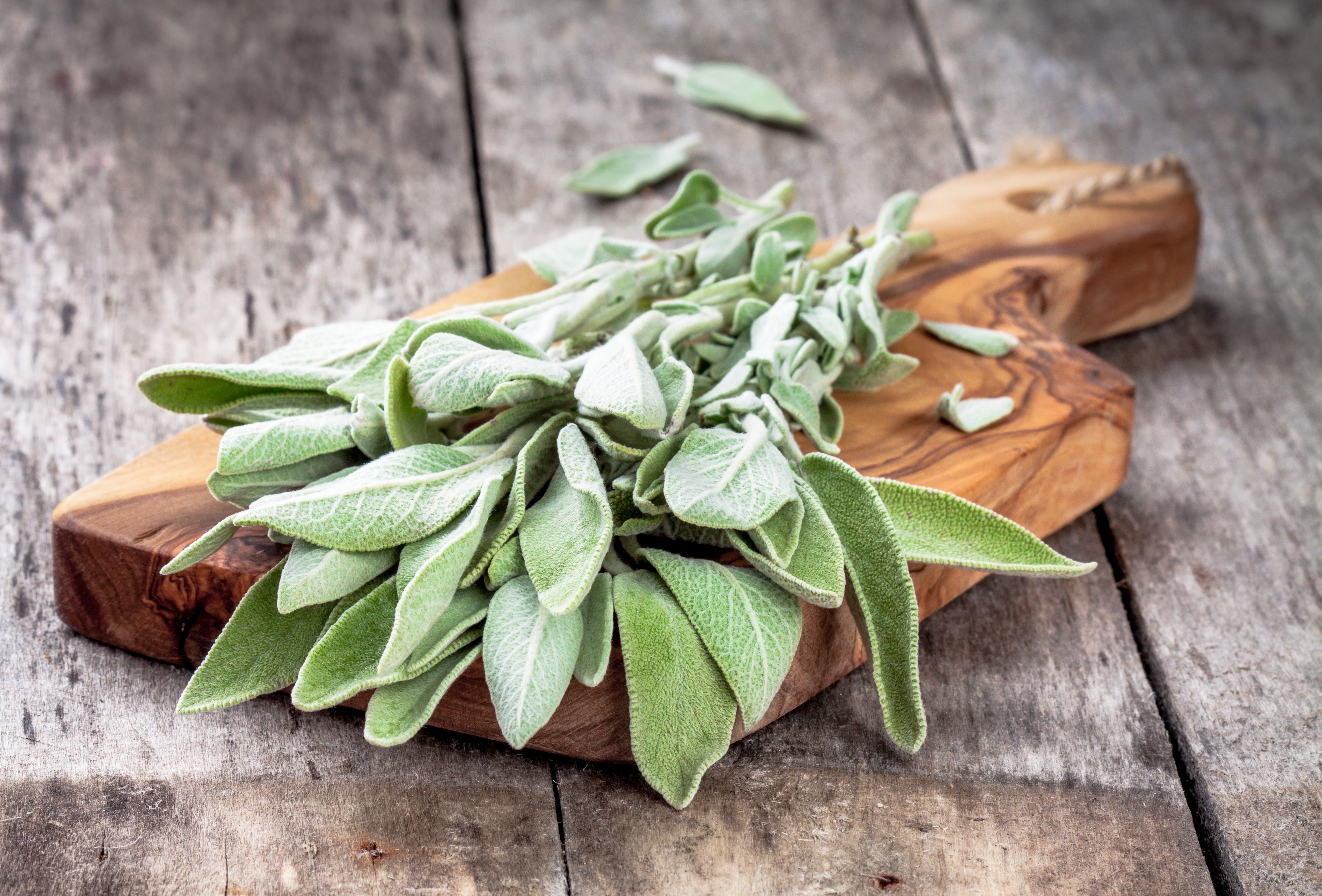
Sage has long been associated with wisdom and health, and modern research is catching up. It is rich in antioxidants, particularly rosmarinic acid, which has been shown to reduce cholesterol levels and improve overall heart health. Sage also contains compounds that support liver function, which is crucial for the body's ability to produce and manage cholesterol. This fragrant herb can be used in a variety of dishes, from roasted meats to sauces, or steeped into tea. Incorporating sage into your diet is a simple way to add both flavor and a heart-healthy boost.
25. Bay Leaf: The Silent Healer
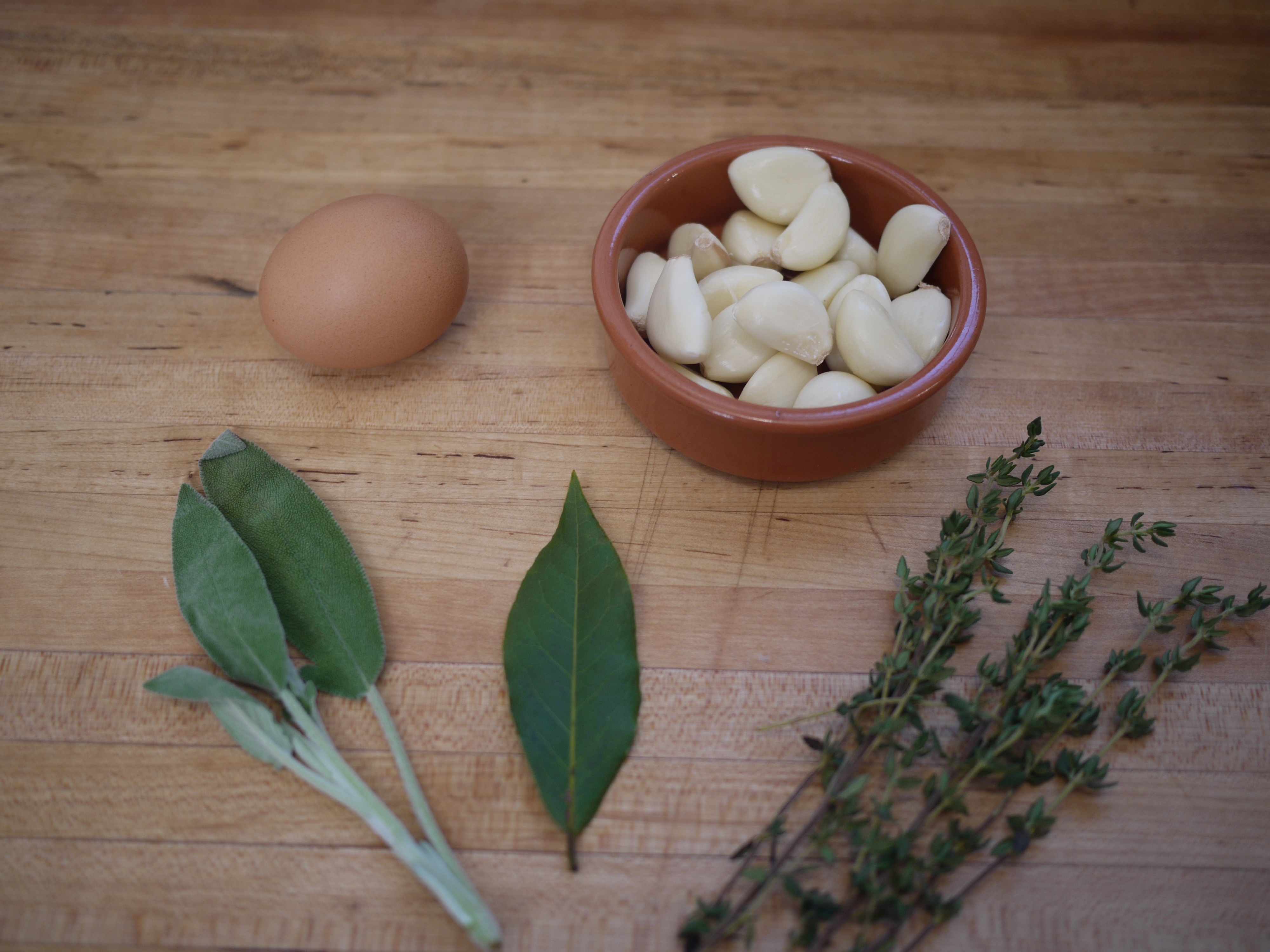
Bay leaves are often used in soups, stews, and sauces to add a subtle flavor, but they also have a powerful effect on cholesterol. The leaves contain compounds that have been shown to help lower LDL (bad) cholesterol and triglyceride levels. Bay leaves are also rich in antioxidants and anti-inflammatory compounds that protect against cellular damage and reduce the risk of chronic diseases. To get the most benefits, add a whole bay leaf to your cooking and remove it before serving.
26. Marjoram: The Gentle Protector
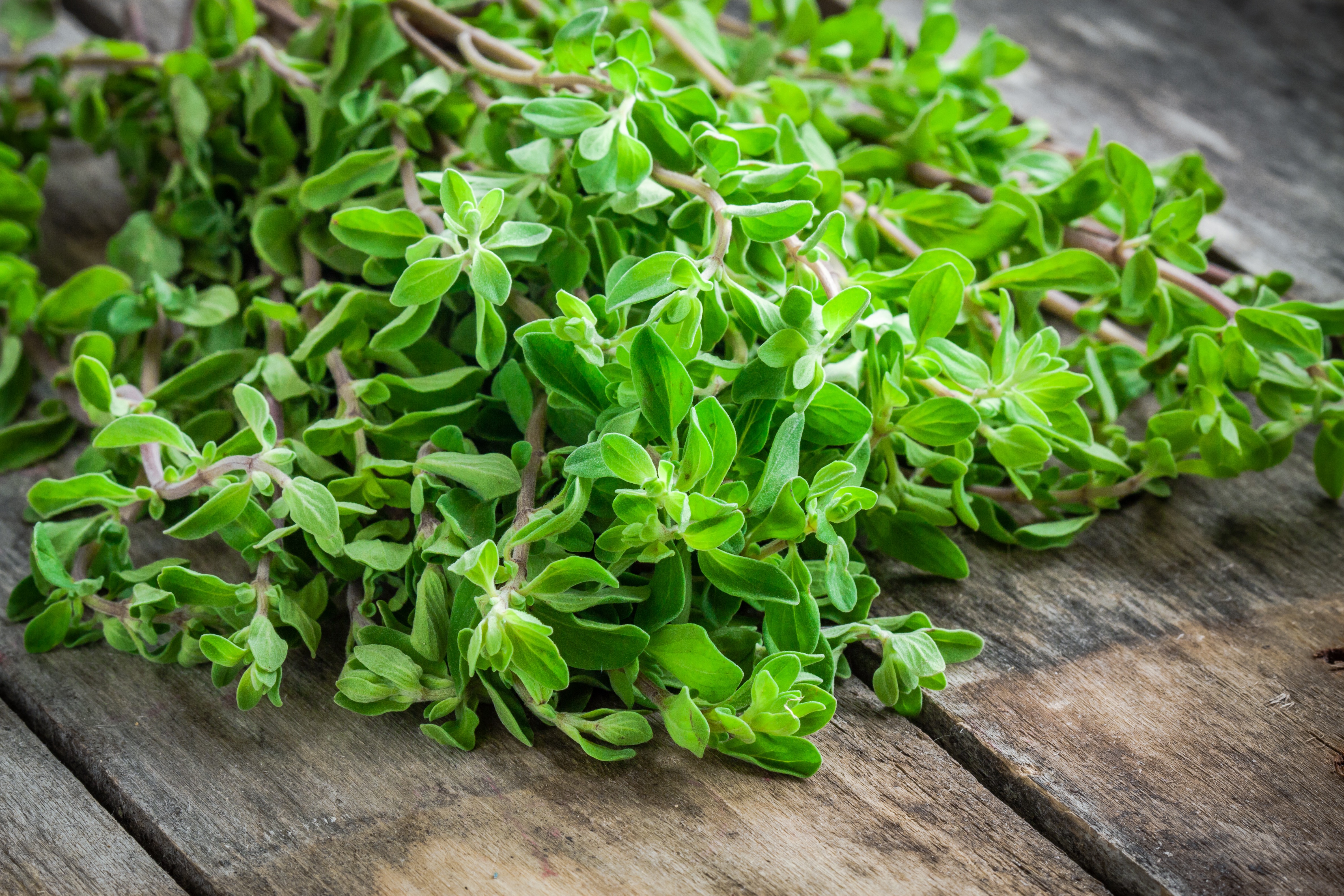
A close relative of oregano, marjoram is a flavorful herb known for its milder, sweeter profile. Beyond its culinary uses, marjoram is a rich source of antioxidants like carvacrol and rosmarinic acid, which help combat free radical damage and reduce inflammation. Studies have shown that these compounds can help protect the heart and blood vessels from oxidative stress, a key factor in the development of atherosclerosis. Marjoram is a versatile herb that can be used fresh or dried. It works beautifully in Italian dishes, marinades, and on grilled meats. Adding marjoram to your meals is a simple way to get a subtle flavor boost along with powerful, protective benefits for your heart.
27. Thyme: The Aromatic Anti-Inflammatory

Thyme is a small-leafed herb that packs a powerful health punch. It's rich in flavonoids and other phenolic compounds, particularly thymol and carvacrol, which have been shown to have potent antioxidant and anti-inflammatory properties. Chronic inflammation is a significant risk factor for heart disease and can contribute to the development of arterial plaque. By helping to reduce inflammation and oxidative stress, thyme can protect your cardiovascular system. You can use thyme in a variety of dishes, from roasted chicken and vegetables to soups and stews. Its earthy, slightly minty flavor pairs well with a wide range of ingredients, making it an easy and delicious addition to your heart-healthy cooking.
28. Horseradish: The Fiery Detoxifier
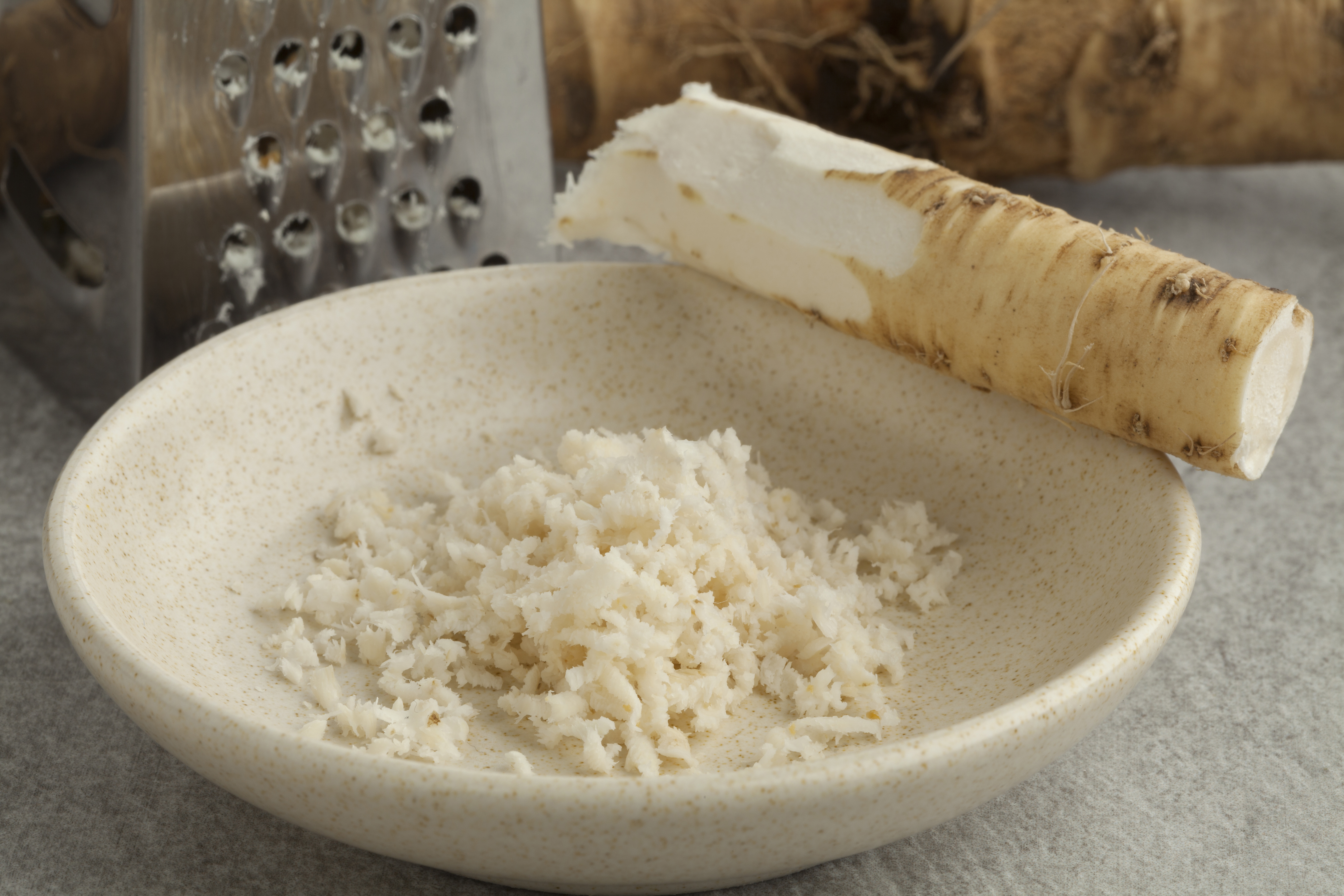
Horseradish is more than just a spicy condiment; it's a potent ally for heart health. It contains compounds called glucosinolates that support the liver's natural detoxification processes. A healthy liver is essential for producing and managing cholesterol, so by aiding its function, horseradish helps your body clear out excess cholesterol more effectively. Its fiery flavor also stimulates circulation, helping to improve blood flow. Grate fresh horseradish into sauces, dressings, or stir-fries for a powerful and unexpected boost to your heart-healthy diet.
29. Caraway Seeds: The Digestive Regulator
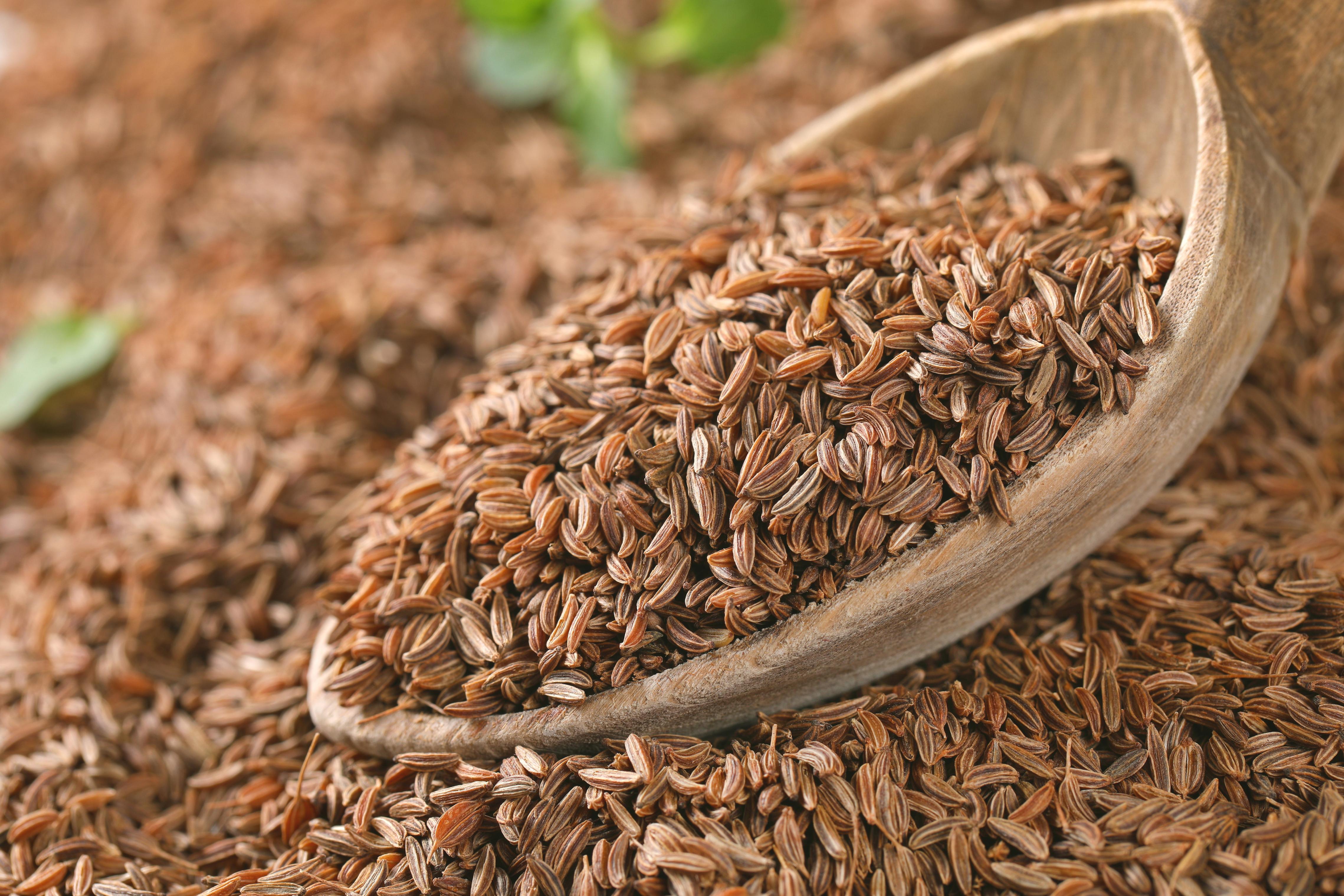
Caraway seeds, with their distinctive nutty and slightly peppery flavor, are an excellent addition to your heart-healthy spice cabinet. They are rich in fiber and essential oils that help with digestion and reduce bloating. By promoting a healthy digestive system, caraway seeds help your body efficiently process and excrete dietary fats and cholesterol, preventing them from being absorbed into your bloodstream. You can add caraway seeds to breads, roasted vegetables, or soups. This small, unassuming seed offers a simple way to improve your digestive health and, in turn, your cardiovascular well-being.
30. White Pepper: The Circulation Booster
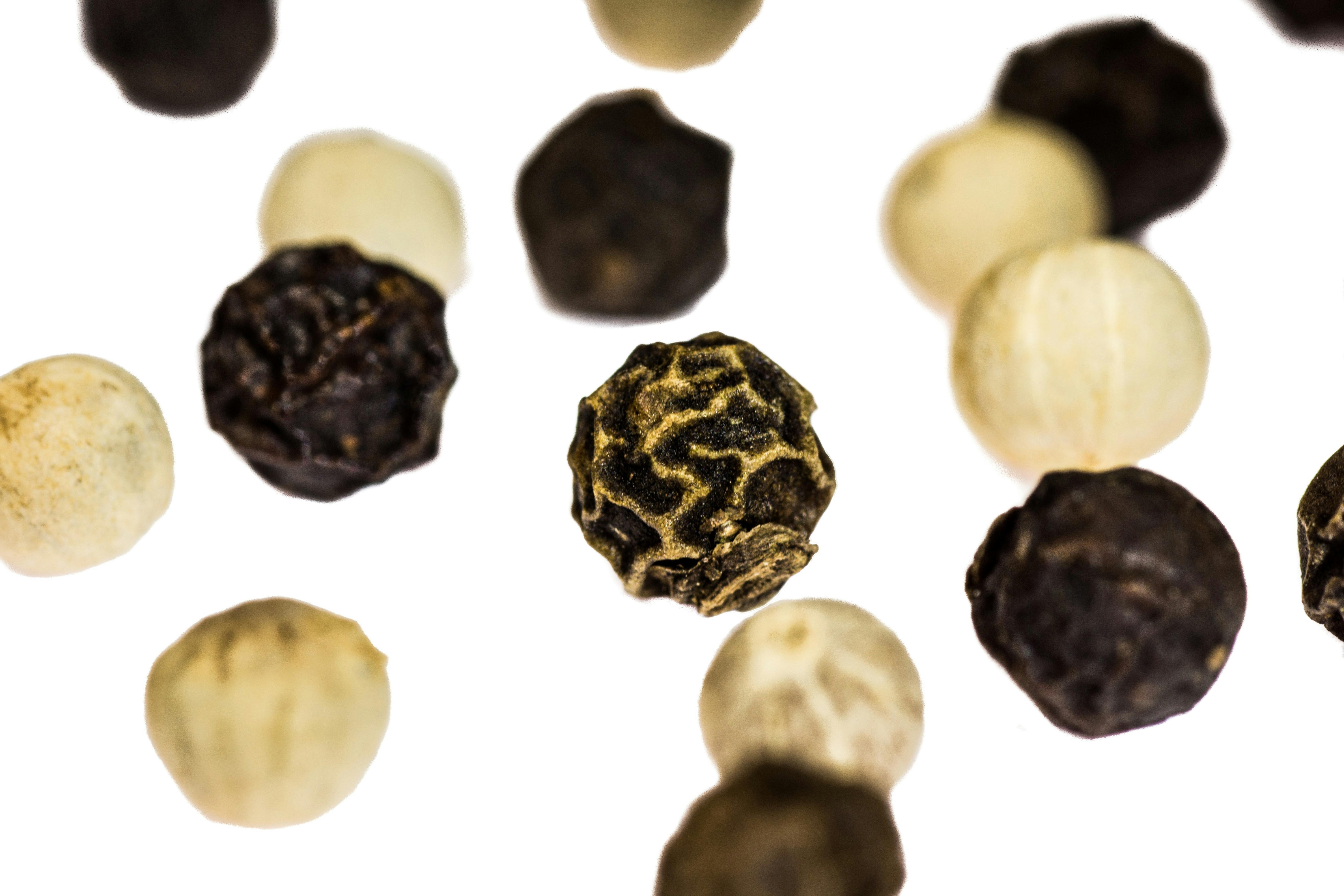
White pepper, a refined version of black pepper, offers a subtle yet effective way to support your heart. It contains piperine, the same compound found in black pepper, which has been shown to improve nutrient absorption and support healthy circulation. White pepper also has antioxidant properties that help protect against cellular damage. Its milder flavor makes it a perfect addition to light-colored dishes, creams, and sauces where black pepper would stand out. By using white pepper, you can add a delicate spice that works quietly behind the scenes to support your cardiovascular system.
31. Asafoetida: The Digestive Powerhouse

Asafoetida, a pungent spice often used in Indian cuisine, is a powerful digestive aid that indirectly supports heart health. It is known for its ability to reduce gas and bloating, which can put pressure on the digestive system. By promoting healthy digestion, asafoetida helps your body efficiently process and absorb nutrients, reducing the systemic stress that can lead to inflammation. While its strong flavor requires it to be used sparingly, a pinch of asafoetida can significantly improve your digestive health, which is a foundational component of overall cardiovascular wellness.
32. Psyllium Husk: The Intestinal Broom
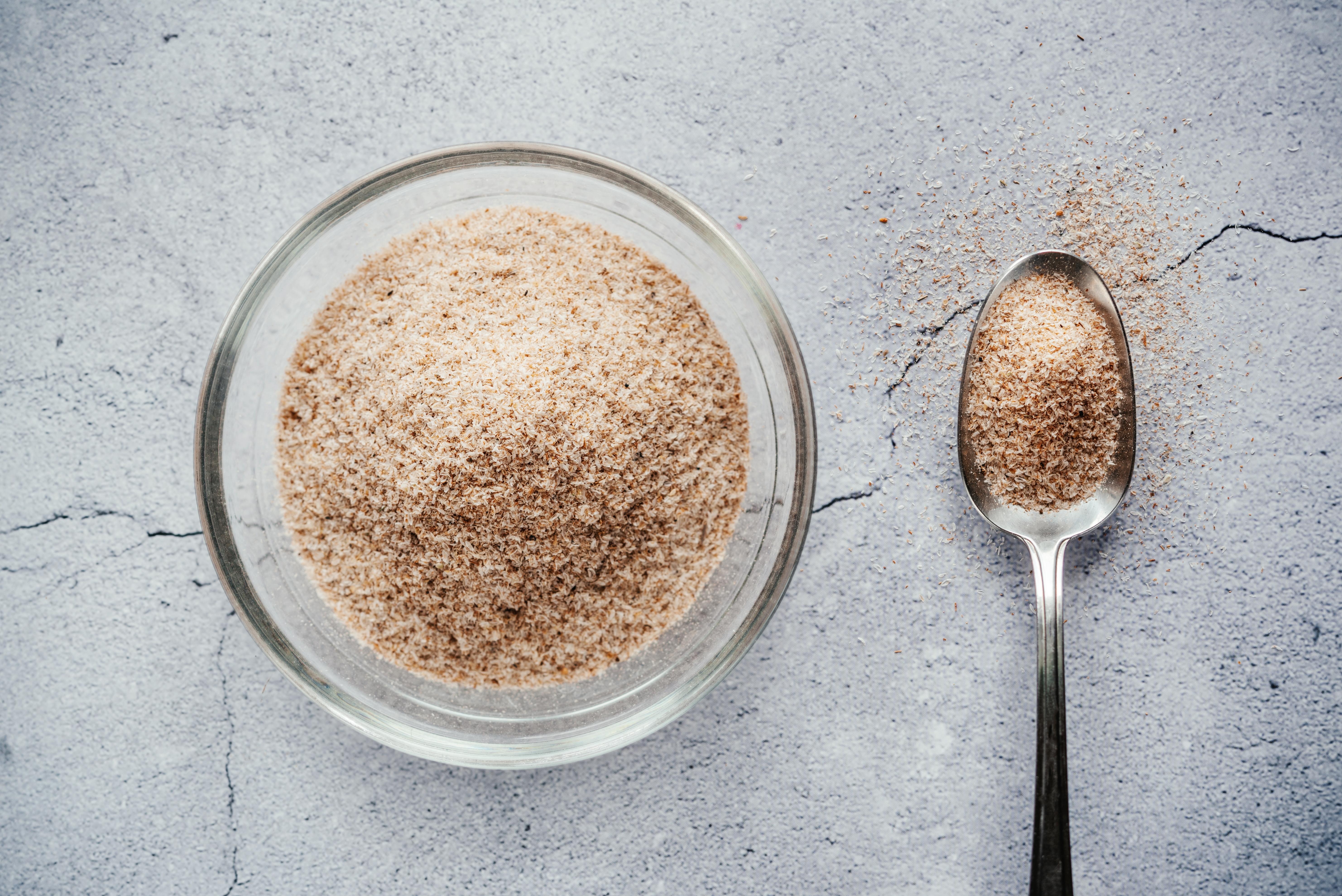
While not a spice in the traditional sense, psyllium husk is a powerful, plant-based ally for lowering cholesterol. It's a form of soluble fiber that, when consumed, forms a thick, gel-like substance in your digestive system. This gel acts like a sponge, directly binding to excess cholesterol and bile acids and carrying them out of your body before they can be absorbed. This forces the liver to pull more cholesterol from the bloodstream to produce new bile, actively lowering your overall blood cholesterol. You can easily add a spoonful of psyllium husk powder to a glass of water, a smoothie, or a breakfast bowl for a simple yet highly effective daily boost.
33. Sichuan Peppercorns: The Tingly Protector
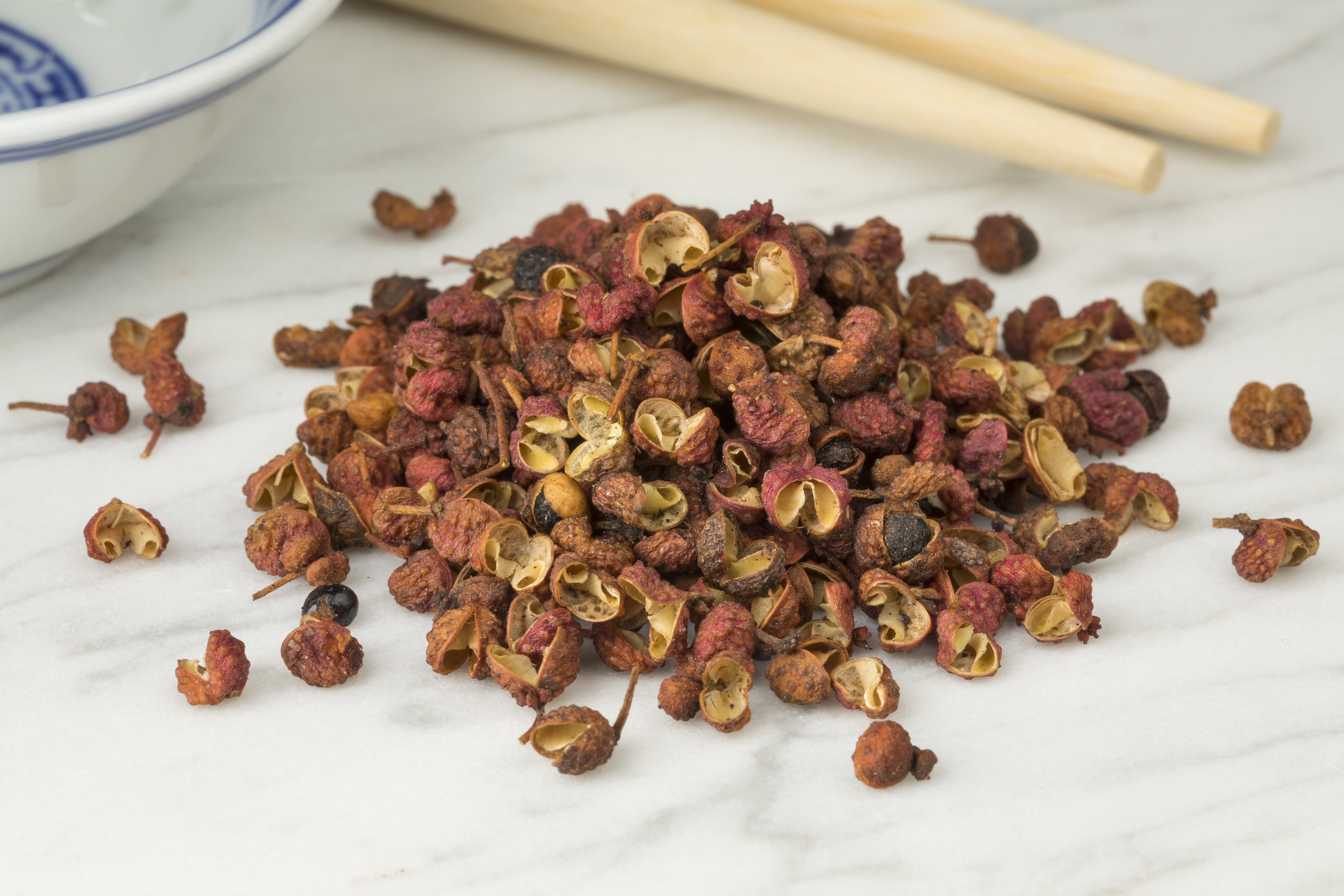
Sichuan peppercorns, a signature of Chinese cuisine, are unique in their ability to create a numbing, tingling sensation on the tongue. Beyond this distinctive feeling, they offer significant health benefits. They are rich in antioxidants, particularly limonene, which helps protect cells from damage and reduces oxidative stress. Research also suggests that the compounds in Sichuan peppercorns can aid in lowering cholesterol and improving blood flow. Their unique flavor profile, a blend of citrus and floral notes with a pleasant heat, makes them an excellent addition to stir-fries, marinades, and spice rubs for a delicious, heart-healthy twist.
34. Celery Seeds: The Mineral-Rich Regulator
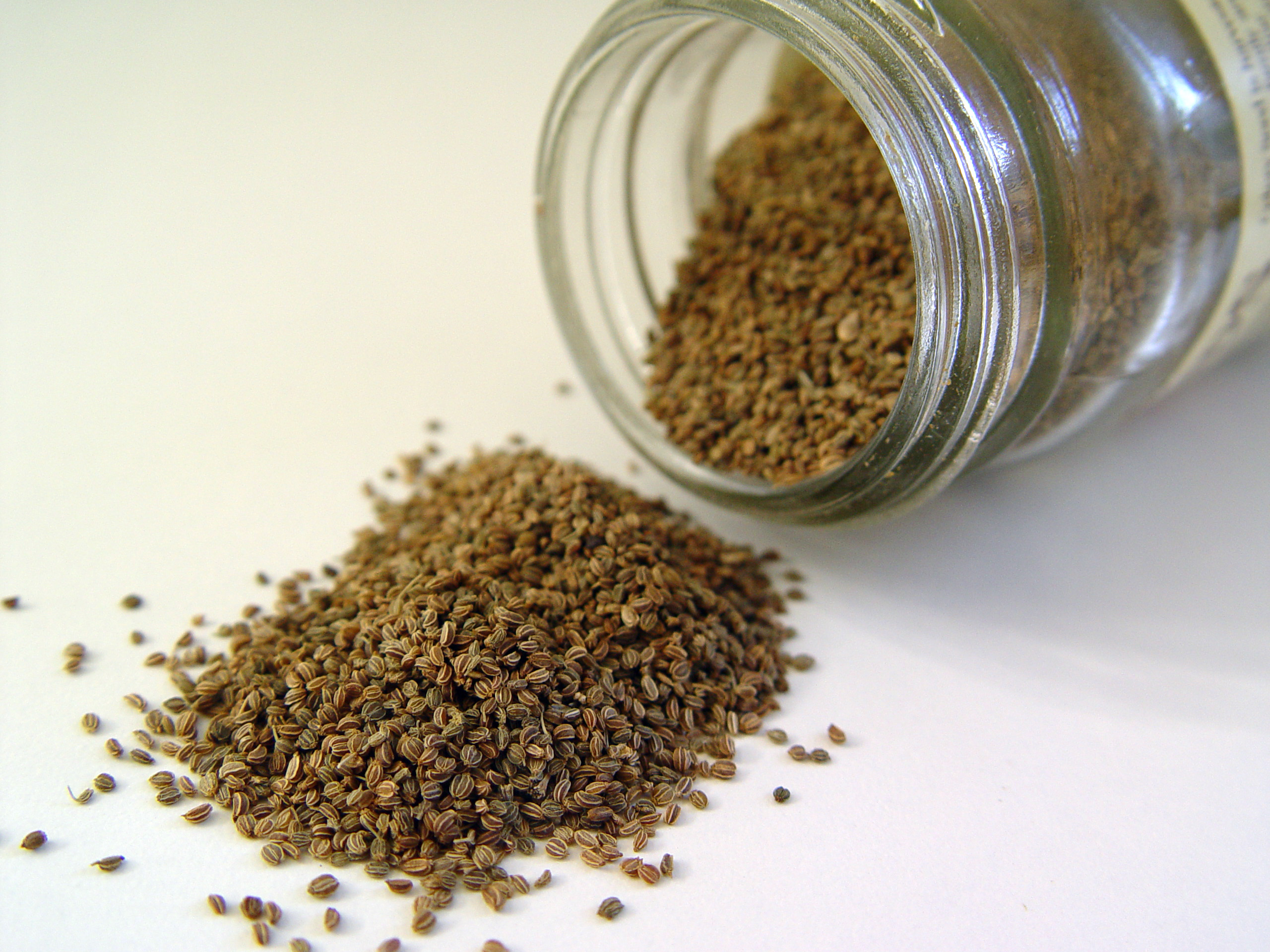
Often overlooked, celery seeds are a powerful little spice with a long history of medicinal use. They contain phthalides, compounds that have been shown to help relax arterial walls, which can lead to lower blood pressure and improved circulation. These seeds are also a good source of fiber, which helps bind to and remove excess cholesterol from the body. Their robust, earthy, and slightly bitter flavor is an ideal addition to soups, stews, and brines. By adding celery seeds to your cooking, you can infuse your dishes with both a subtle flavor and a significant cardiovascular boost.
35. Allspice: The Multi-Sided Healer
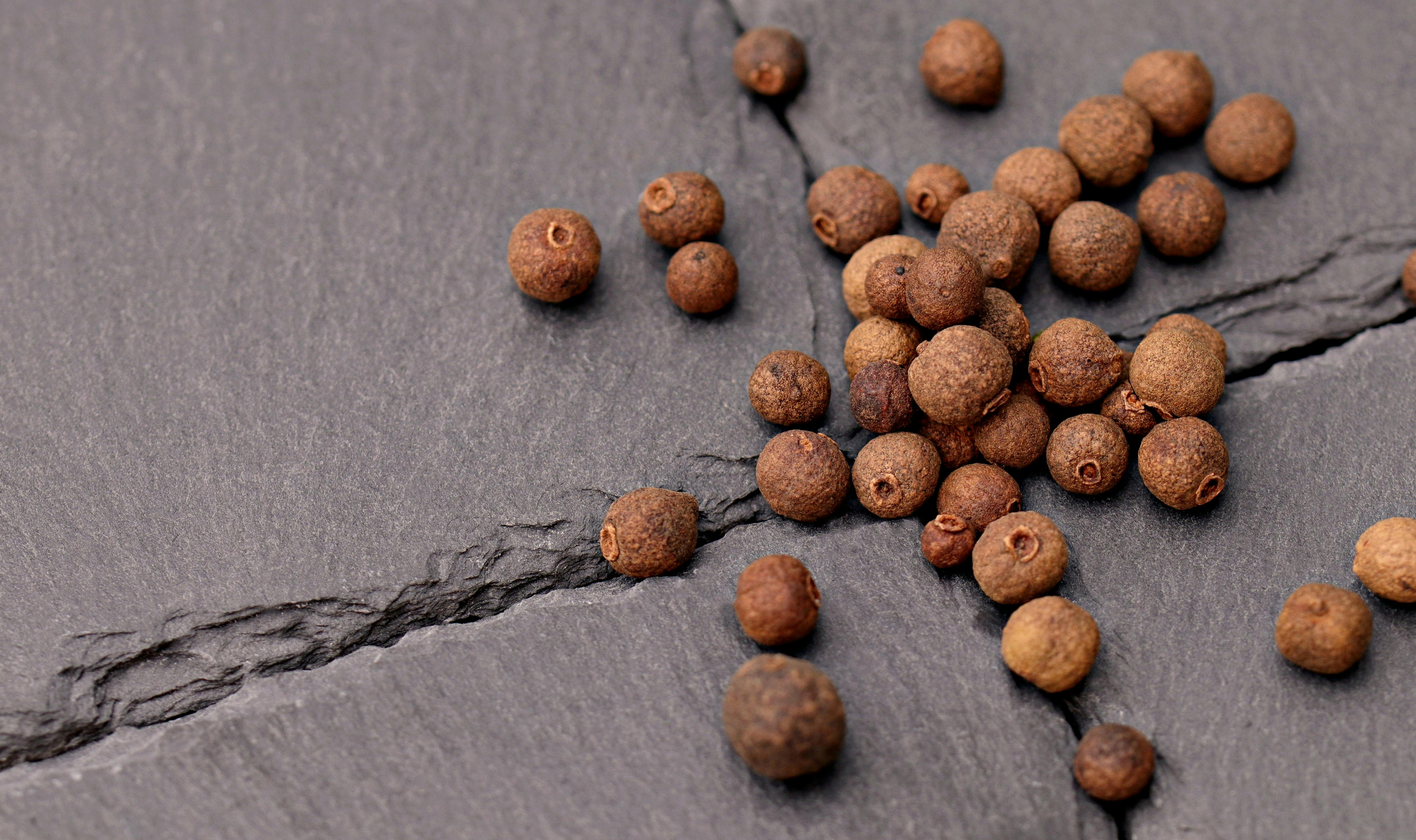
Allspice gets its name from its flavor, which is a complex blend of cinnamon, cloves, and nutmeg. This single spice is a powerful source of eugenol, the same compound found in cloves, which has been shown to reduce cholesterol levels and have potent anti-inflammatory effects. Allspice also contains quercetin, a flavonoid with strong antioxidant properties that protects against heart disease. Use it in both sweet and savory applications—it's a key ingredient in jerk seasoning and is also excellent in baked goods, soups, and marinades. Its versatile nature makes it a secret weapon for adding a rich, warm flavor and powerful health benefits to a wide range of dishes.
36. Marjoram: The Gentle Heart Protector
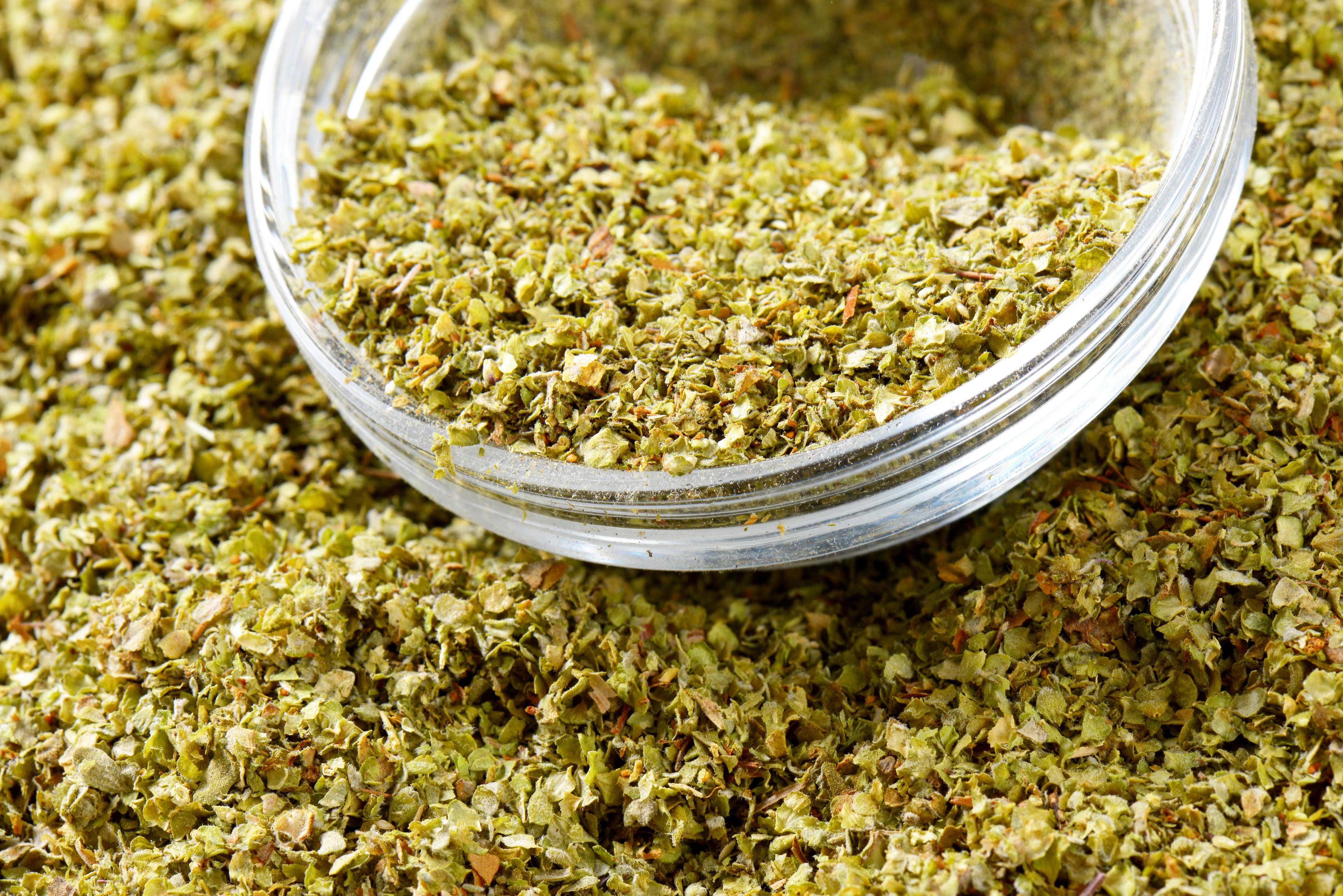
Marjoram, a close relative of oregano with a milder, sweeter flavor, is a powerful ally for cardiovascular health. It is packed with antioxidants, particularly carvacrol and rosmarinic acid, which help combat free radical damage and reduce inflammation—a key factor in the development of atherosclerosis. Studies have shown that these compounds can help protect the heart and blood vessels from oxidative stress. Marjoram is a versatile herb that works beautifully in Italian dishes, marinades, and on grilled meats. Adding marjoram to your meals is a simple way to get a subtle flavor boost along with powerful, protective benefits for your heart.
37. Barberry: The Tart Heart Booster

These small, ruby-red berries, a staple in Iranian cuisine, offer a unique, tart flavor and a powerful compound called berberine. Berberine has been extensively studied for its ability to lower cholesterol and triglycerides, improve blood sugar control, and even support liver function. It works by activating an enzyme that helps regulate metabolism and fat storage. Barberries can be rehydrated and added to rice pilafs, stews, and grain salads for a burst of flavor and color. Their vibrant sourness adds a surprising and beneficial element to savory dishes, making them a delicious and effective choice for heart health.
38. Hawthorn Berries: The Vascular Superfood
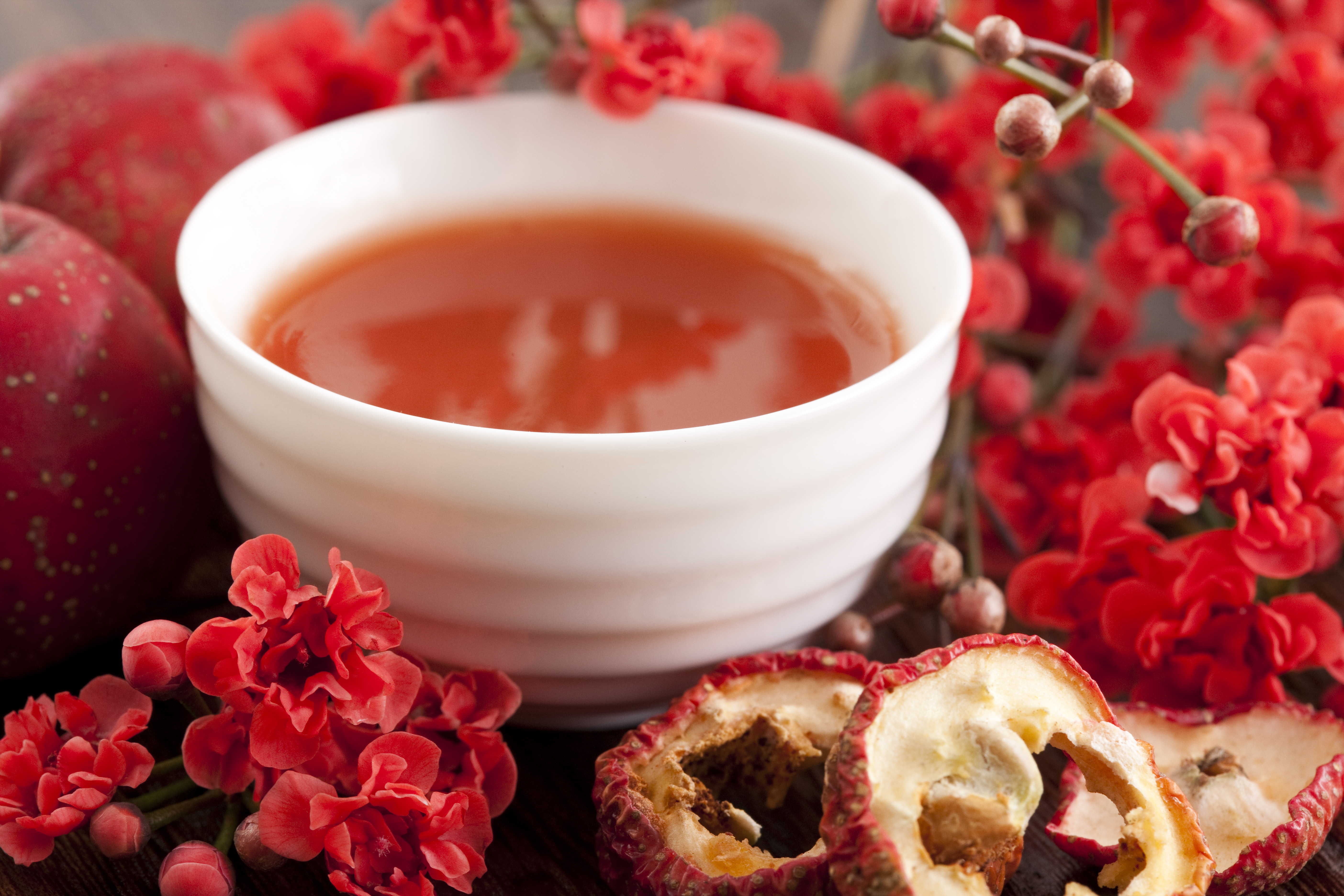
While not a typical cooking spice, hawthorn berries are a medicinal plant with a powerful reputation for heart health. These small, red berries are a vasodilator, meaning they help relax and widen blood vessels, which improves circulation and can lower blood pressure. This effect directly reduces the stress on your arteries. Hawthorn berries contain flavonoids and oligomeric proanthocyanidins (OPCs), which help protect against the oxidation of LDL cholesterol, preventing the buildup of plaque in arteries. You can find them dried and use them to make a tart, flavorful tea, or add them to jams and jellies for a subtle, tangy note.
39. Juniper Berries: The Diuretic Defender

Known for giving gin its distinctive piney flavor, juniper berries are a surprising ally for cardiovascular health. They are a natural diuretic, which helps the body flush out excess fluids and sodium, a key factor in managing blood pressure. By reducing fluid retention, juniper berries alleviate the strain on your heart and kidneys. Additionally, they are rich in antioxidants and unique essential oils that help protect cells from damage and reduce inflammation. Crushed juniper berries can be used as a spice rub for roasted meats, particularly game, or infused into sauces and stews for an earthy, aromatic depth.
40. Lovage: The Leafy Cholesterol Regulator
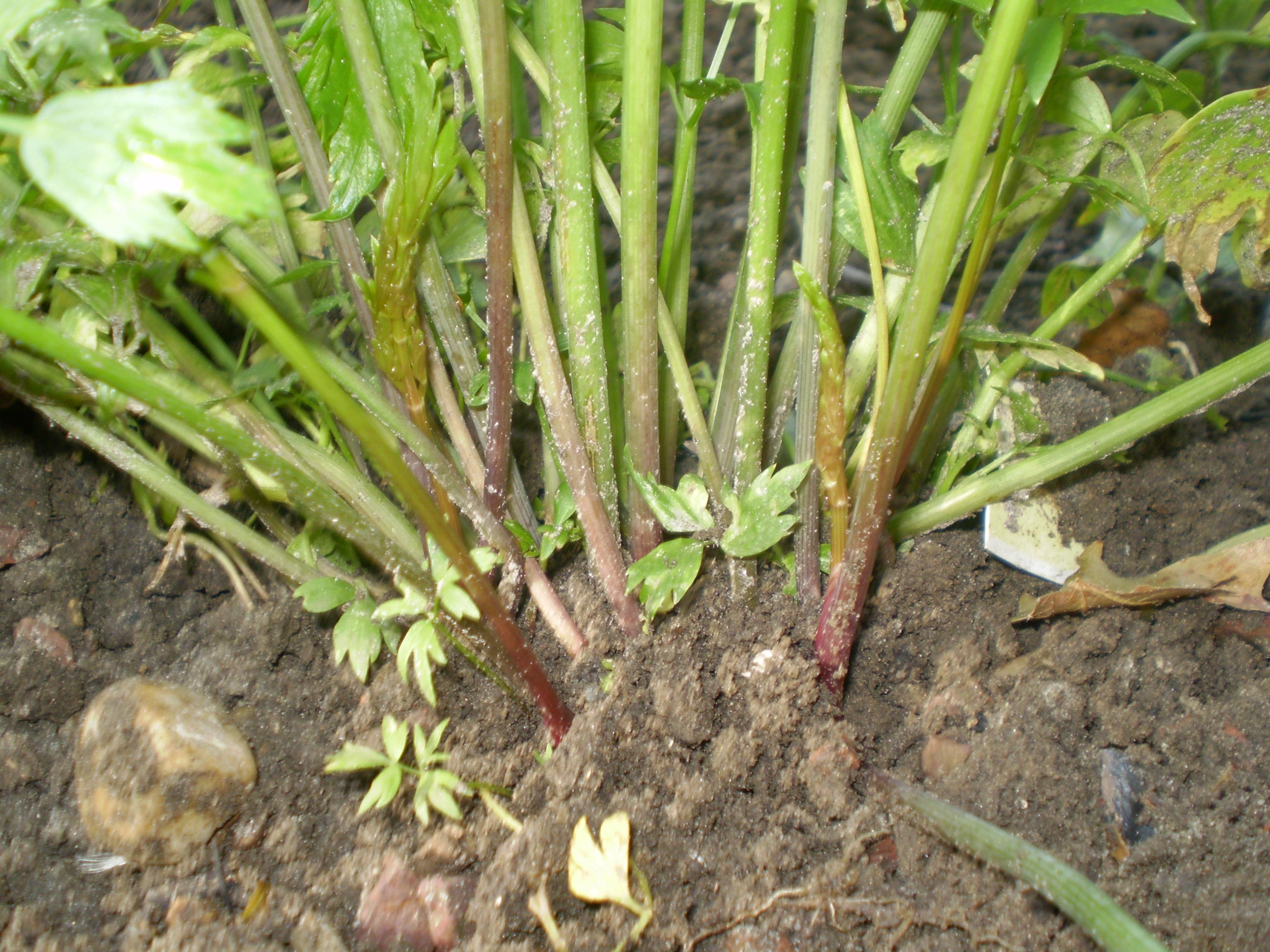
Often mistaken for celery, lovage is a herb with a rich, savory flavor and a powerful effect on cholesterol. It contains compounds called phthalides (the same as celery seeds), which have been shown to help relax the smooth muscles in arterial walls, promoting better blood flow and lower blood pressure. Lovage also contains unique coumarins that can help reduce blood clotting. Its flavor profile is a deep, concentrated version of celery and parsley, making it an excellent addition to soups, stocks, and roasted vegetables. A few fresh lovage leaves can add a powerful punch of flavor and a significant health boost.
41. Grains of Paradise: The Thermogenic Ally
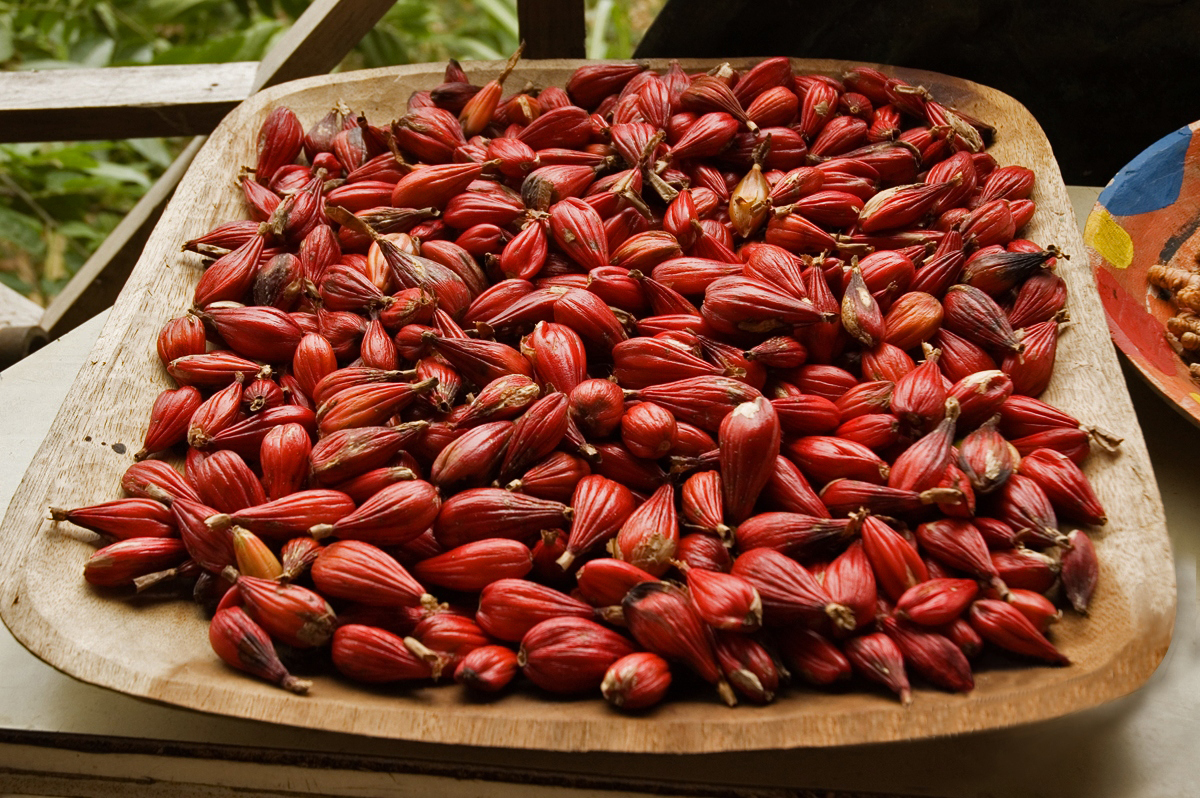
Grains of Paradise, a spice related to ginger and native to West Africa, offer a pungent, peppery flavor with a subtle citrusy finish. Their unique cholesterol-lowering effect comes from their thermogenic properties. The compounds in Grains of Paradise, particularly 6-paradol, have been shown to activate brown adipose tissue, which is a type of fat that burns calories to generate heat. By increasing the body's metabolic rate and energy expenditure, this spice helps with weight management, which in turn reduces the strain on your cardiovascular system and improves cholesterol levels. Use them as a more nuanced, exotic alternative to black pepper.
42. Nigella Seeds: The Black Seed Ally
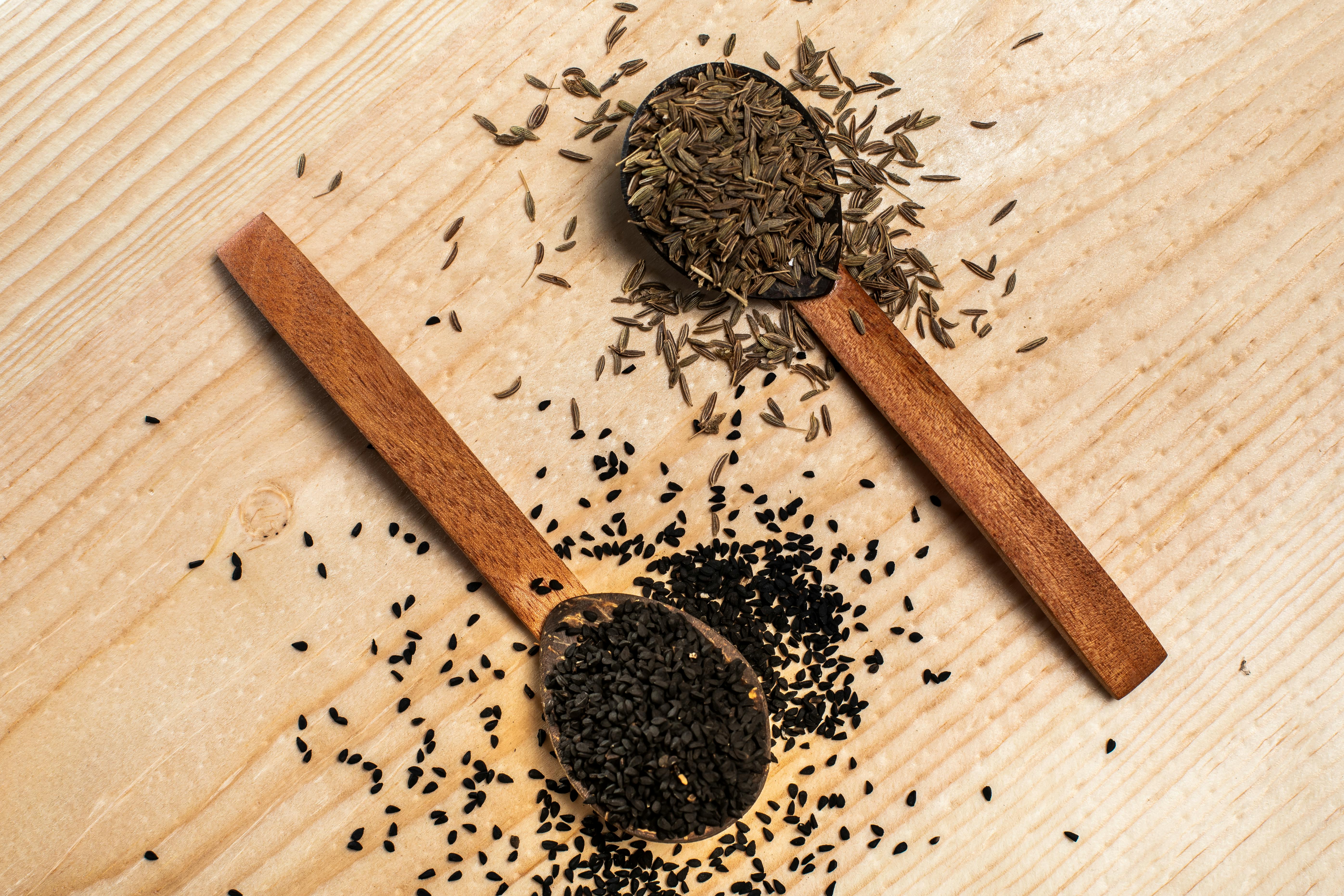
Nigella seeds, also known as black seeds or black cumin, are a cornerstone of Middle Eastern and Indian cuisine. They possess a unique flavor profile that is a complex blend of oregano, onion, and black pepper. Beyond their culinary use, they contain a powerful compound called thymoquinone which has been extensively studied for its cholesterol-lowering properties. Thymoquinone has been shown to reduce both total and LDL cholesterol by inhibiting their absorption and synthesis in the body. A daily spoonful of these tiny seeds, whether sprinkled on bread, added to salads, or ground into a spice blend, can be a potent and savory way to support your heart health.
43. Arjuna Bark: The Heart's Ayurvedic Ally

Arjuna bark, a staple in Ayurvedic medicine, is an exceptional herb specifically used to promote cardiovascular health. Its active compounds, called arjunolic acid and polyphenols, have been shown to strengthen heart muscle, improve circulation, and significantly lower LDL (bad) cholesterol and triglyceride levels. Arjuna works by enhancing the liver's ability to metabolize and excrete cholesterol. It is typically consumed as a powder mixed with warm water or in capsule form. This unique bark offers a powerful and time-honored approach to fortifying your heart and naturally managing your cholesterol.
44. Hibiscus: The Tart, Ruby-Red Protector
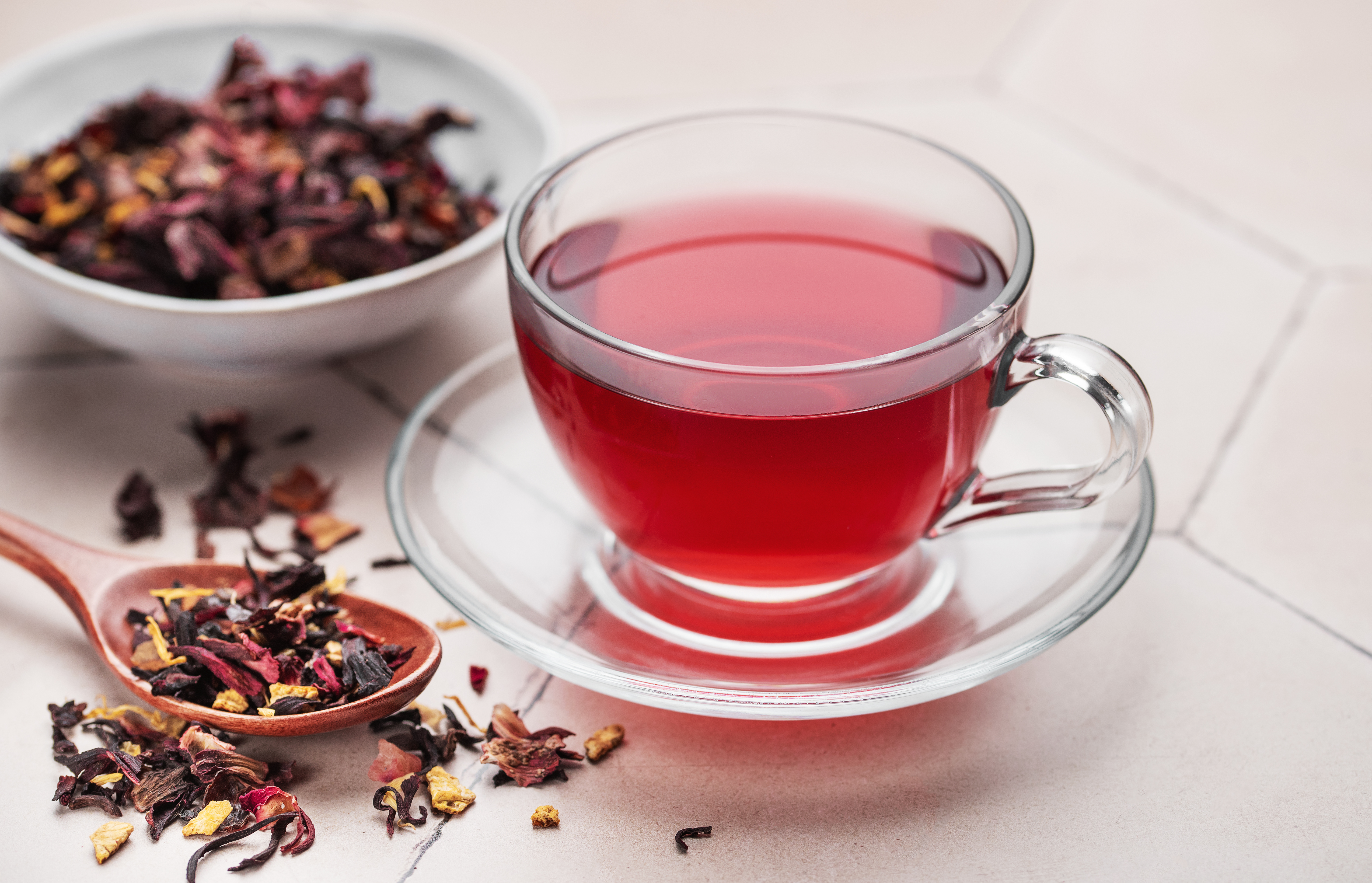
Known for its vibrant color and tart, cranberry-like flavor, hibiscus is a flower that makes a delicious and heart-healthy tea. It is packed with anthocyanins and other powerful antioxidants that have been shown to help lower both blood pressure and LDL cholesterol. Hibiscus works by inhibiting an enzyme that constricts blood vessels and by reducing the oxidation of bad cholesterol, a key step in plaque formation. Enjoy it hot or iced; this fragrant and refreshing beverage is a simple yet effective ritual that can make a tangible difference in your cardiovascular health.
45. Frankincense (Boswellia): The Anti-Inflammatory Resin
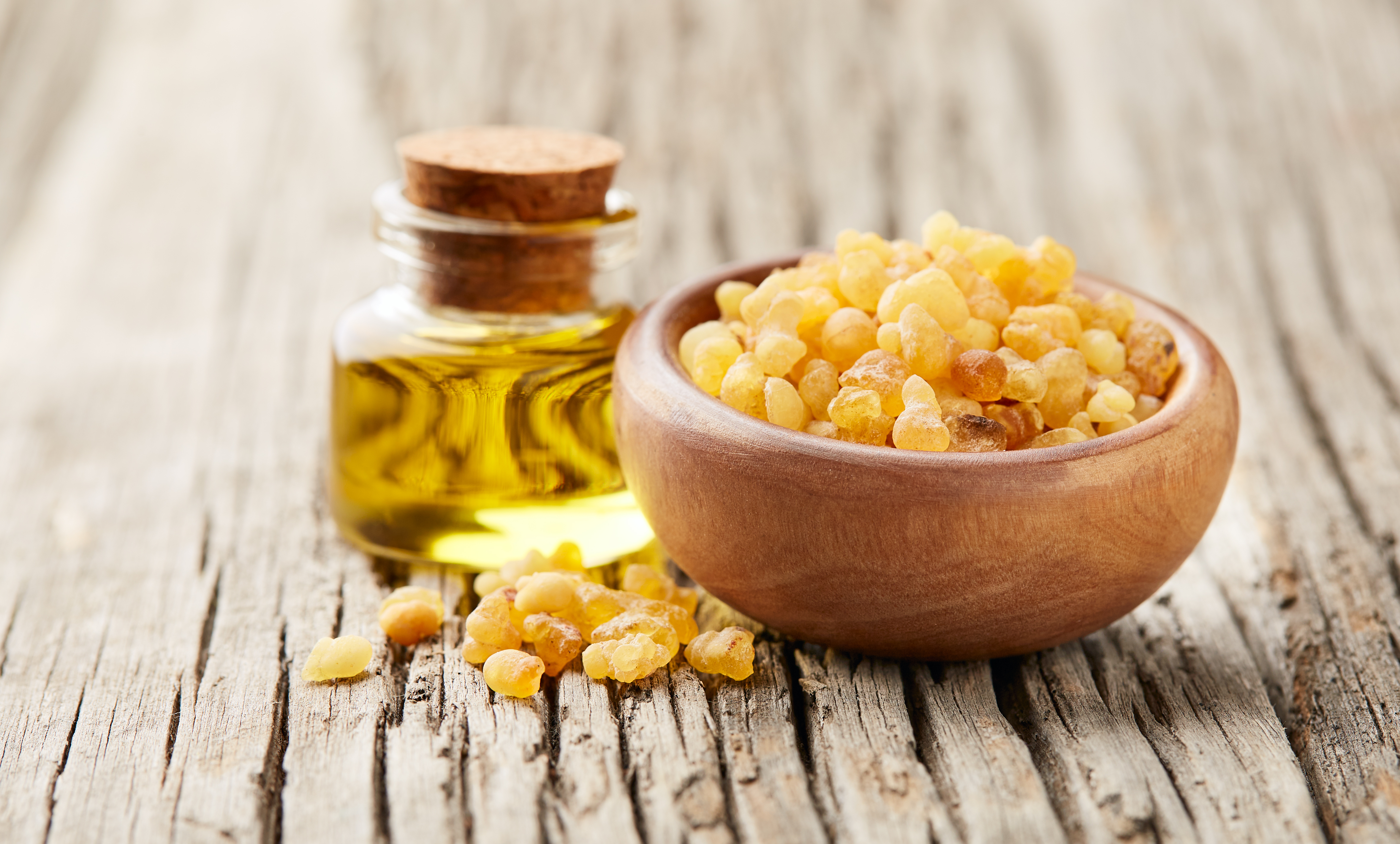
While not a typical cooking spice, frankincense, a resin from the Boswellia tree, is a powerful ally against high cholesterol. Its active compounds, boswellic acids, are potent anti-inflammatory agents that work by inhibiting an enzyme that drives chronic inflammation in the body. Chronic inflammation is a major contributor to atherosclerosis and high cholesterol. By calming this internal "fire," frankincense helps to protect your arteries and support overall cardiovascular health. It's typically consumed in capsule form, offering a unique and targeted approach to managing cholesterol.
46. Sarsaparilla: The Blood-Purifying Root
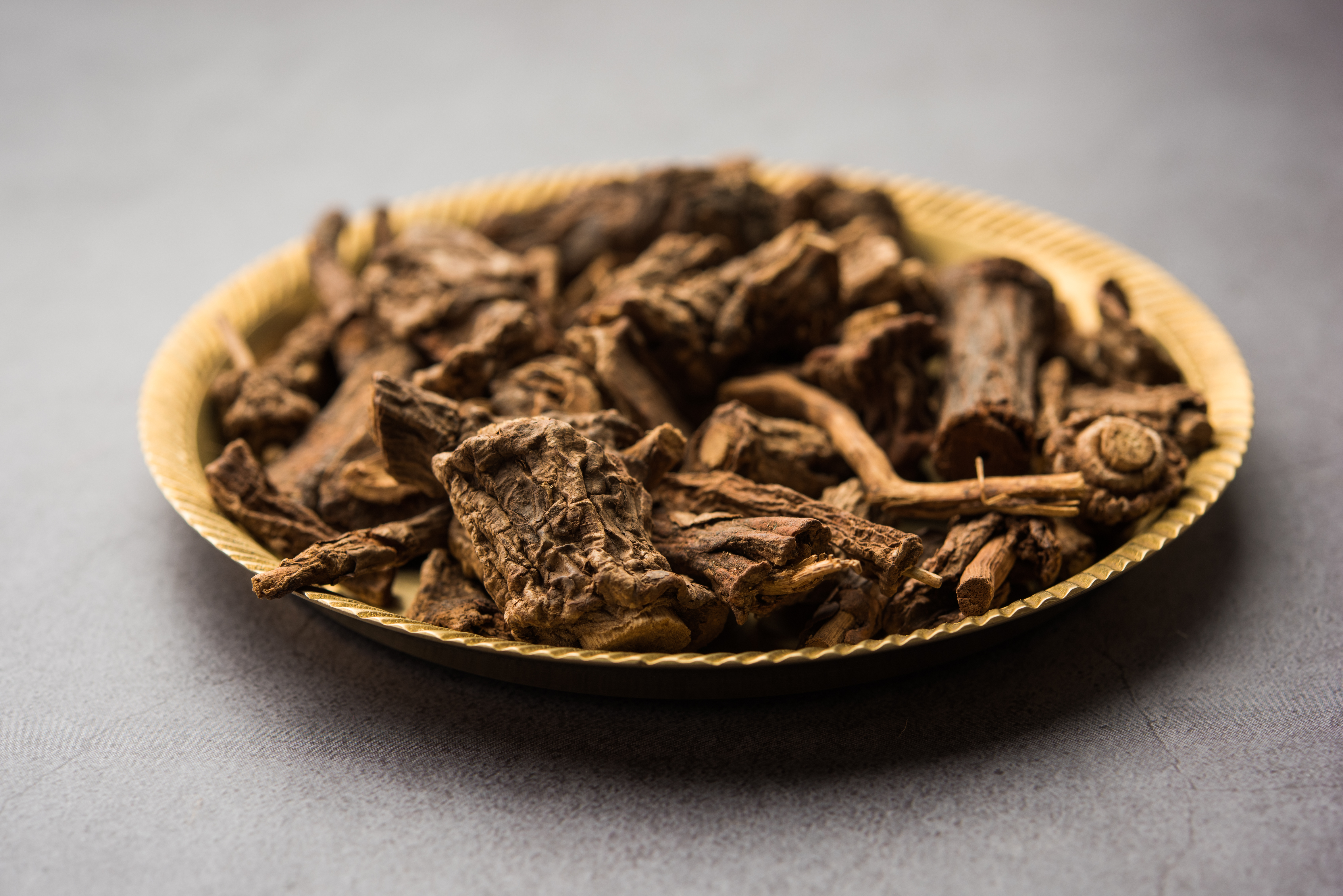
Sarsaparilla is a unique root herb with a long history of use in traditional medicine for "purifying the blood." This is attributed to its high concentration of saponins, plant compounds that have a unique ability to bind to toxins and, most importantly, to excess cholesterol in the digestive tract. By binding to cholesterol, sarsaparilla helps to prevent its absorption, ensuring it is eliminated from the body. This purifying action supports healthy liver function and helps naturally lower cholesterol levels. This root can be steeped into a tea or found in traditional root beers.
47. Milk Thistle: The Liver's Cholesterol Guardian
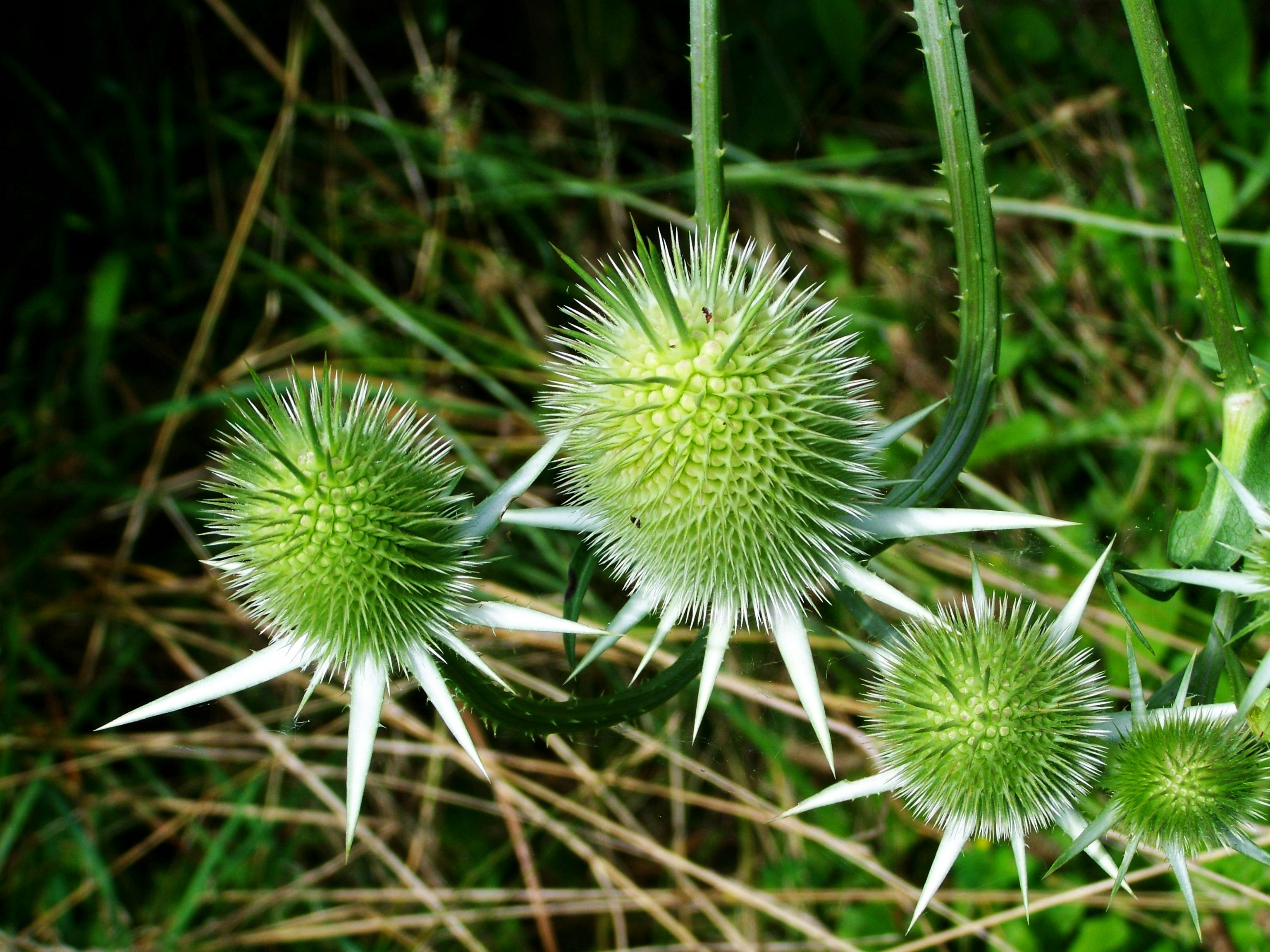
The liver is the organ responsible for producing and managing cholesterol. Milk thistle, a herb renowned for its liver-protective properties, can be a powerful ally in the fight against high cholesterol. Its main active compound, silymarin, is a potent antioxidant that helps protect liver cells from damage and promotes their regeneration. By keeping your liver healthy and functioning optimally, milk thistle ensures that it can efficiently process and remove excess cholesterol from your bloodstream. A healthy liver is a cornerstone of a healthy heart, making milk thistle an invaluable herb for long-term cardiovascular health.
48. Amchoor (Dried Mango Powder): The Tangy Regulator

Amchoor is a spice made from dried, unripe green mangoes and is a staple in Indian and Pakistani cooking. It delivers a unique, sour tang that's often used to brighten up dishes without adding moisture. But beyond its vibrant flavor, amchoor is a great source of phenolic compounds and antioxidants. These compounds help combat oxidative stress, which is a major contributor to the buildup of arterial plaque. Amchoor's sour flavor also helps to balance and cut through rich, fatty foods, making it an excellent secret ingredient for marinades, curries, and vegetable dishes. It's a simple and effective way to infuse your meals with a healthy, tangy twist.
49. Annatto Seeds: The Colorful Antioxidant

Annatto seeds, with their vibrant red-orange color, are often used as a natural food coloring and a mild flavor enhancer in Latin American and Caribbean cuisines. The color comes from a powerful antioxidant called bixin. Bixin has been shown to protect against the oxidation of LDL cholesterol, a crucial step in the development of atherosclerosis. Beyond their protective benefits, these seeds have a subtle, earthy, and peppery flavor. To use them, you can steep them in hot oil to create a flavorful, colored oil for rice or stews, or grind them into a powder for spice rubs and sauces. Annatto adds a beautiful visual element to your dishes while working to protect your heart from the inside out.
50. Mahlab: The Aromatic Heartwood
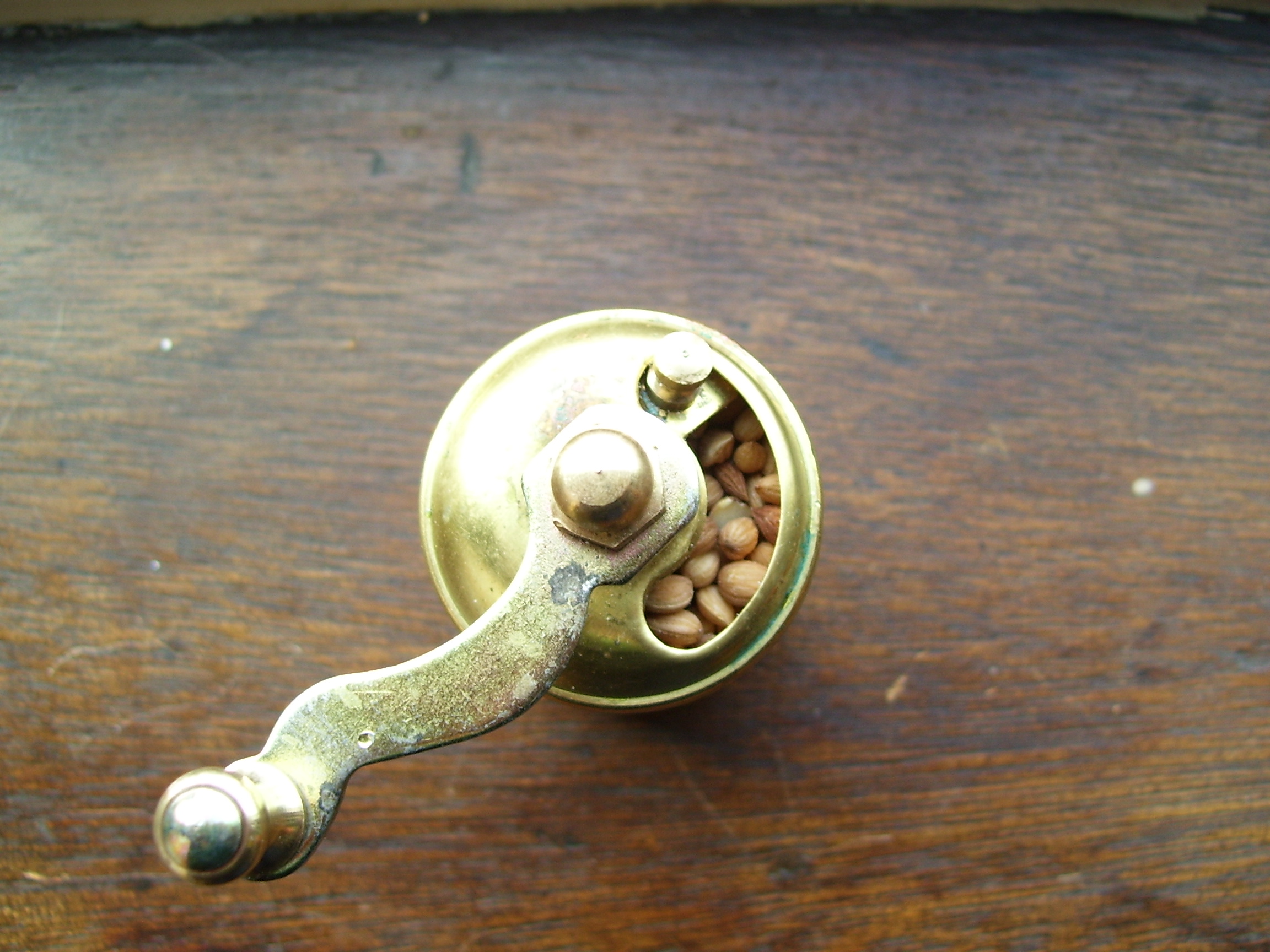
Mahlab is a unique spice made from the ground seeds of a cherry species, and it's a key ingredient in Middle Eastern and Greek baking. It has a complex, nutty, and slightly bitter flavor with notes of cherry and almond. While its primary use is in sweets and pastries, its health benefits are worth noting. Mahlab is rich in coumarins, plant compounds that have been shown to help reduce blood clotting and improve circulation, both of which are critical for cardiovascular health. By incorporating mahlab into your baking—think breads, cookies, or cakes—you can enjoy its aromatic flavor and add a subtle, protective boost to your heart.
51. Sassafras: The Aromatic Blood Purifier

Sassafras, a spice made from the dried root bark of the sassafras tree, is a key ingredient in traditional root beer and Creole cuisine. While it's no longer widely used in commercial food due to a now-debunked health concern, its traditional use as a "blood purifier" is rooted in its benefits for heart health. Sassafras contains compounds like safrole, which, in small amounts, can help improve circulation and support liver function. A healthy liver is essential for managing cholesterol levels. Its warm, sweet flavor is reminiscent of root beer and can be used in small quantities to add a unique, aromatic depth to stews, broths, and sauces.
52. Grains of Paradise (Aframomum melegueta): Thermogenic Fat Mobilizer
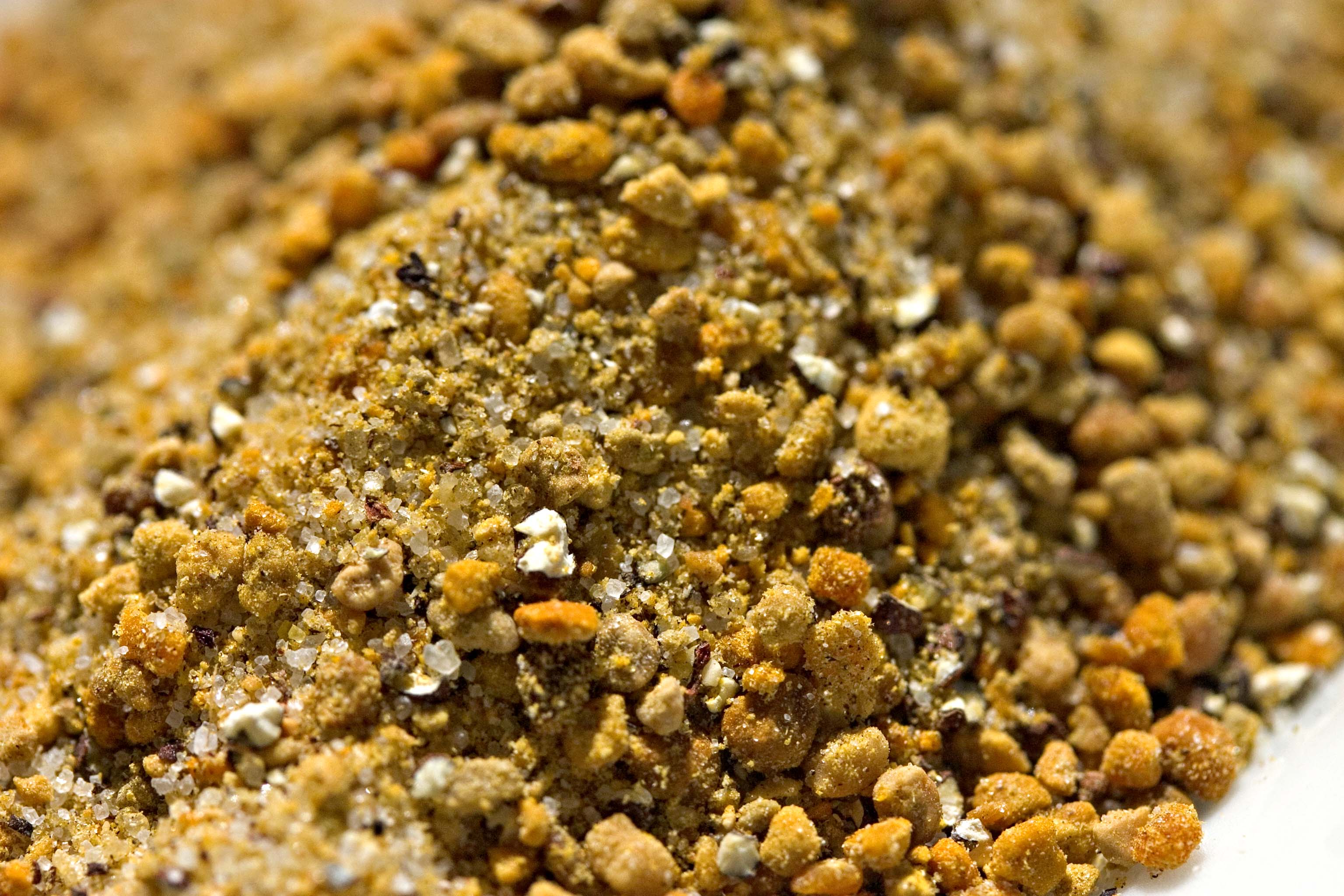
Grains of Paradise, a spice related to ginger and native to West Africa, offers a pungent, peppery flavor with a subtle citrusy finish. Their unique cholesterol-lowering and lipid-regulating effect comes from their thermogenic properties, distinct from the action of piperine or curcumin. The active compounds, such as 6-paradol, have been shown to selectively activate Brown Adipose Tissue (BAT) . This is a type of fat that burns calories to generate heat. By increasing the body's overall metabolic rate and specifically promoting fat burning, this spice helps with general weight and lipid management, which in turn reduces the systemic load on the cardiovascular system and improves cholesterol levels. Use them as a more nuanced, exotic alternative to black pepper in savory dishes and spice blends.
53. Black Seed Oil (Nigella Sativa): The Thymoquinone Powerhouse
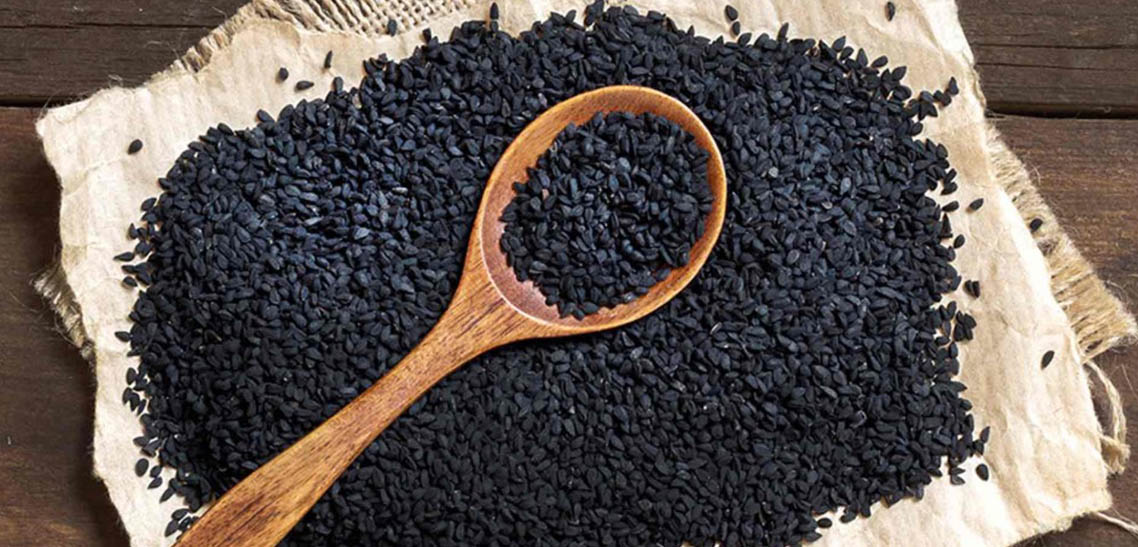
Black Seed Oil, extracted from Nigella Sativa seeds (also known as black cumin or kalonji), is not a traditional spice but a concentrated oil used for medicinal and culinary purposes. Its primary active compound is thymoquinone, which has been extensively studied for its powerful effects on lipid profiles. Thymoquinone is shown to reduce both total and LDL cholesterol levels while simultaneously elevating protective HDL cholesterol. It achieves this by inhibiting the absorption of cholesterol in the gut and supporting antioxidant activity in the liver. A simple daily dose (often a half-teaspoon mixed with honey or added to salad dressings) is a potent, concentrated way to leverage a unique compound, turning an ancient remedy into a modern, high-impact cardiovascular hack.
54. Galangal (Thai Ginger): The Artery-Protective Anti-Inflammatory
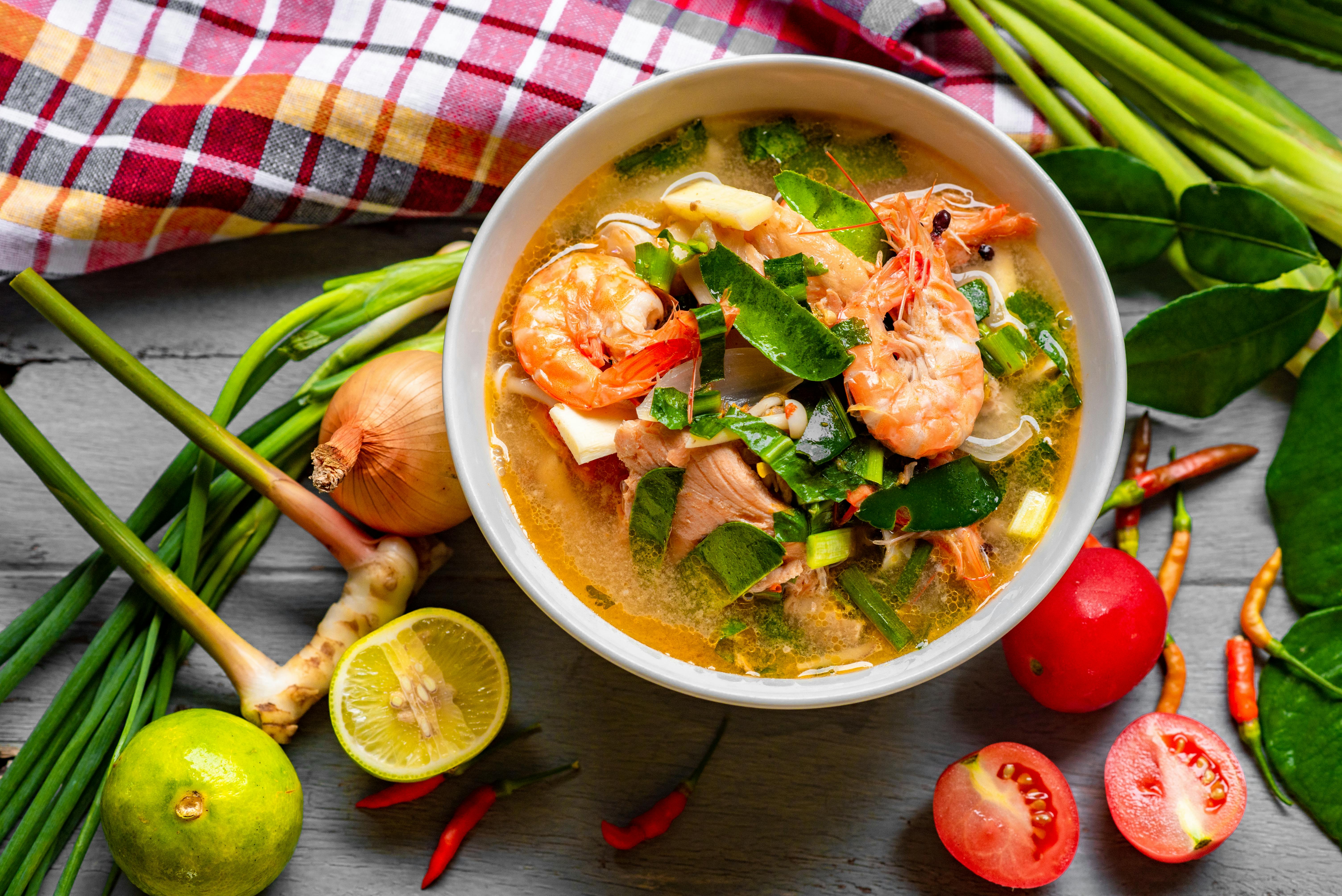
Galangal, a rhizome closely related to ginger and turmeric and a staple in Southeast Asian cooking, offers a unique profile for heart health. Its primary active compounds, particularly galangin, are powerful antioxidants and anti-inflammatories. Galangin has been shown to be effective at inhibiting the oxidation of LDL cholesterol—a critical step in the formation of arterial plaque. By protecting the LDL particle from damage, galangal helps keep arteries smooth and flexible. Unlike ginger, galangal has a sharp, citrusy, and slightly piney flavor. Use fresh slices to infuse coconut milk soups or curry bases for a bright, flavorful, and potent defense against cardiovascular damage.
55. Nutmeg Mace: The Myristicin Metabolic Modulator
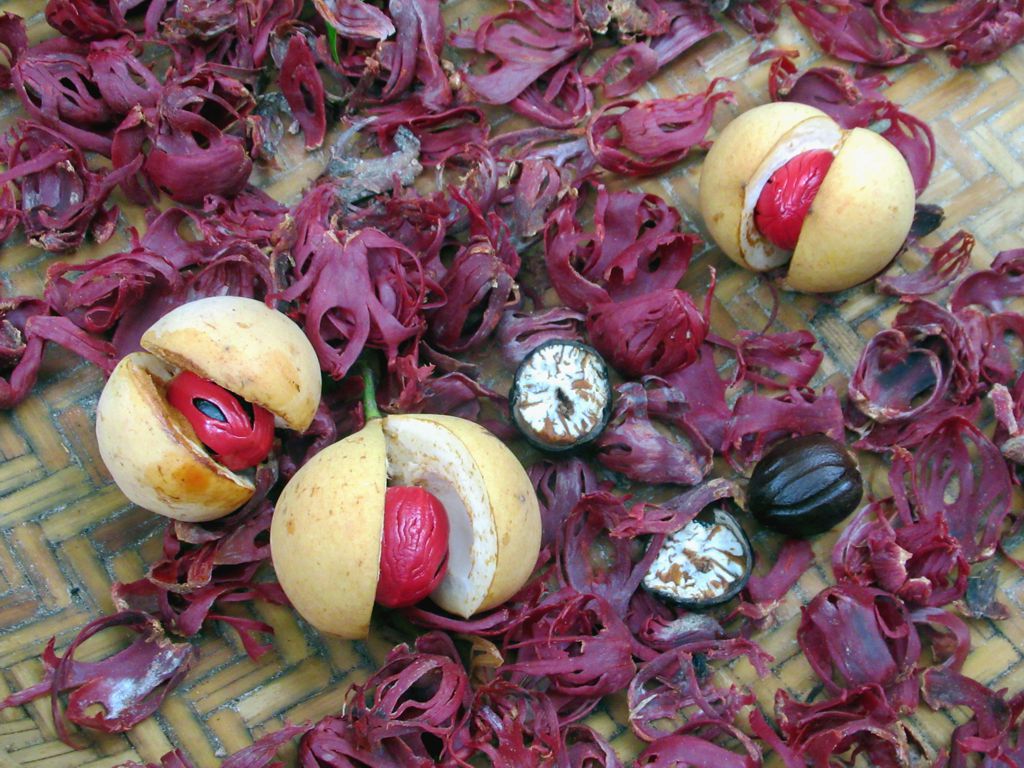
Mace is the lacy, reddish covering (aril) of the nutmeg seed, but it offers a distinctly different flavor and health profile than the nutmeg kernel itself. Mace contains high concentrations of myristicin and macelignan, compounds studied for their ability to activate specific receptors (PPARs) that regulate glucose metabolism and fat storage. By improving insulin sensitivity and lipid metabolism, mace helps prevent the high blood sugar spikes that often accompany—and worsen—high cholesterol issues. Its flavor is sweeter, lighter, and more delicate than nutmeg, making it perfect for savory cream sauces, seafood dishes, or fruit desserts where a subtle, metabolic-boosting spice is desired.
56. Sesame Oil (Sesamin and Sesamolin Lignans)
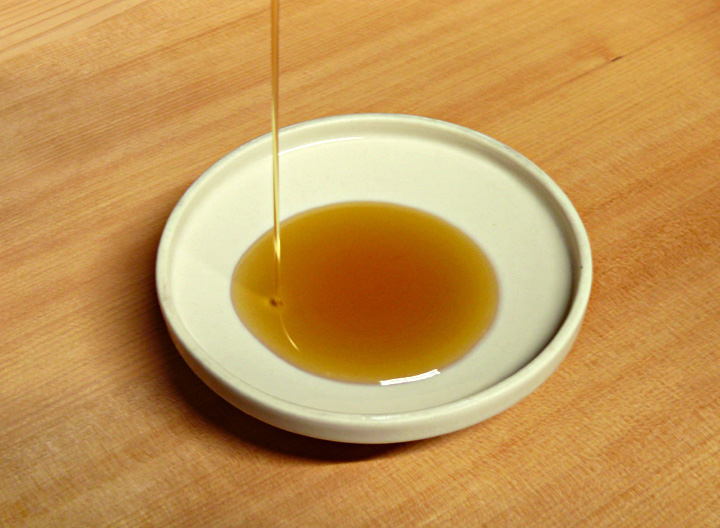
Sesame oil, widely used as a finishing oil for its deep, nutty aroma, is rich in unique compounds called lignans, primarily sesamin and sesamolin. These lignans are powerful cholesterol allies. Studies suggest they work by two primary mechanisms: inhibiting cholesterol absorption in the intestines and modulating the liver's production of cholesterol. Specifically, sesamin is shown to increase the efficiency of the liver's fatty acid oxidation. Use a small drizzle of toasted sesame oil after cooking (as high heat can degrade the lignans) on stir-fries, noodle dishes, or vegetables. This quick, flavorful addition takes only seconds and provides a highly concentrated dose of these heart-protective lignans
A Flavorful Path to Heart Health

Incorporating these spices into your cooking not only elevates the flavor of your dishes but also contributes significantly to lowering bad cholesterol and supporting heart health. Each spice offers unique properties and health benefits, making them valuable allies in the pursuit of a healthier lifestyle. By embracing these flavorful secrets, you can transform your meals into delicious, heart-healthy creations that nourish both body and soul. As you experiment with these spices, remember that the journey to better health can be as enjoyable and satisfying as the destination itself.